#Sima Jiao
Explore tagged Tumblr posts
Text


Cdrama: Long for Fish (2024)
new drama#献鱼 #陈飞宇 #王影璐 #ซีรีส์จีน #cdrama #chinesedrama #youku
Watch this video on Youtube: https://www.youtube.com/shorts/Vx3-rneP6D0
#Long for Fish#献鱼#Offering Salted Fish to Master#Offering Fish#Offering Sailed Fish#Fish Offer#Xian Yu#Xiang Shi Zu Xian Shang Xian Yu#獻魚#向師祖獻上咸魚#向师祖献上咸鱼#2024#youtube#cdrama#chinese drama#shorts#short video#Youku#behind the scenes#adelanto#trailer#Arthur Chen#Chen Fei Yu#Sima Jiao
8 notes
·
View notes
Text
Dynasty Warriors Online Weapon Moveset Counterpart Digest
During the years that Dynasty Warriors Online was in service, many weapons have been made available for players to choose from. The game started off with weapons from Dynasty Warriors 5 before later adding in weapons from 7, 8 and even 9 along with Warriors Orochi 2 and Samurai Warriors 3. Original weapons exclusive to the game have also been made available as well.
The list begins after the break. Please notes that the names for some weapons, particularly in later games, may be different to the names in the game that the movesets were taken from.
Crescent Blade 偃月刀 - Guan Yu (DW5)
Great Axe 大斧 - Xu Huang (DW5)
Great Club 砕棒 - Xu Zhu (DW5)
Iron Rod 鉄鞭 - Huang Gai (DW5)
Scimitar 朴刀 - Xiahou Dun (DW5)
Pirate Sword 甲刀 - Gan Ning (DW5)
Battle Rod 砕棍 - Xiahou Yuan (DW5)
Twin Rods 双鞭 - Taishi Ci (DW5)
War Axe 戦斧 - Dian Wei (DW5)
Twin Picks 双戟 - Pang De (DW5)
Twin Sabers 双剣 - Lu Xun (DW5)
Twin Maces 双錘 - Diaochan (DW5)
Bronze Spear 直槍 - Zhao Yun (DW5)
Cudgel 長棍 - Original (DWO)
Twin Fans 桜扇 - Daqiao (DW5)
Strategist Fan 燕扇 - Sima Yi (DW5)
Vision Staff 幻�� - Pang Tong (DW5)
Sorcerer's Staff 妖杖 - Zhang Jiao (DW5)
Iron Claw 鉄鈎 - Zhang He (DW5)
Nanman Gauntlets 蛮拳 - Meng Huo (DW5)
Iron Sword 鉄剣 - Zhou Yu (DW5)
Tyrant Sword 獄刀 - Dong Zhuo (DW5)
Battle Shield 戦盤 - Original (DWO)
Whip 多節鞭 - Original (DWO)
Curved Voulge 長双刀 - Wei Yan (DW5)
Pole Blade 鉤鎌刀 - Zhang Liao (DW5)
Noble Sword 宝剣 - Yuan Shao (DW5)
Iron Spear 鉄槍 - Ma Chao (DW5)
Wood Nunchaku 両節棍 - Ling Tong (DW5)
Chakram 夏圏 - Sun Shangxiang (DW5)
Bronze Pike 鉄矛 - Zhang Fei (DW5)
Iron Blade 斬馬刀 - Guan Ping (DW5)
Feather Fan 羽扇 - Zhuge Liang (DW5)
Boomerang 投弧刃 - Zhurong (DW5)
Wolf Sword 積刃剣 - Sun Quan (DW5)
Broad Sword 将剣 - Cao Cao (DW5)
Eastern Sword 弧刀 - Zhou Tai (DW5)
Tonfa 旋棍 - Sun Ce (DW5)
Buckler Blade 牙壁 - Cao Ren (DW5)
War Blade 盤刀 - Huang Zhong (DW5)
Dagger Axe 戦戈 - Yueying (DW5)
Flute 鉄笛 - Zhenji (DW5)
Twin Blades 双刃剣 - Cao Pi (DW5)
Apex Blade 尖剣 - Liu Bei (DW5)
Cursed Deck 呪符 - Zuo Ci (DW5)
Trident 三尖槍 - Jiang Wei (DW5)
Long Fork 叉突矛 - Xingcai (DW5)
Glaive 断戟 - Lu Meng (DW5)
Halberd 鉄戟 - Lu Bu (DW5)
Nodachi 野太刀 - Ranmaru Mori (SW3)
Horned Blade 麟角刀 - Original (DWO)
Jamadhar 穿刃 - Original (DWO)
Greatsword 巨剣 - Fu Xi (WO2)
Light Sword 細剣 - Nuwa (WO2)
Fang Sword 牙剣 - Sun Jian (DW5)
Double Fans 桃扇 - Xiaoqiao (DW5)
Fanged Club 狼牙棒 - Original (DWO)
Snake Sword 蛇剣 - Original (DWO)
Ogre's Fist 重手甲 - Original (DWO)
Dragon Barbs 龍牙鈎 - Original (DWO)
Marbles 堕落 - Da Ji (WO)
Throwing Knives 鏢 - Wang Yuanji (DW7)
Crimson Flute 紅蓮笛 - Zhenji (DW7)
Blue Dragon Sword 青龍刀 - Sima Zhao (DW7)
Lance 螺旋槍 - Deng Ai (DW7)
Thunder Spear 雷鳴槍 - Jiang Wei (DW7)
Wheels 火焔圏 - Sun Shangxiang (DW7)
Flying Swords 飛翔剣 - Zhong Hui (DW7)
Dragon Fan 龍扇 - Zhuge Liang (DW7)
Twin Axes 双鉞 - Zhang Liao (DW7)
Red Dragon Sword 紅龍刀 - Sun Quan (DW7)
Long Bow 長弓 - Huang Zhong (DW7)
Splendid Claws 飛麗爪 - Zhang He (DW7)
Heavy Axe 大鉞 - Xu Huang (DW7E)
Orb & Scepter 打球棍 - Guo Jia (DW7XL)
Twin Dragon Swords 双龍剣 - Liu Bei (DW7)
Striking Rods 打双鞭 - Taishi Ci (DW7)
Whirling Tonfa 旋撃棍 - Sun Ce (DW7)
Qilin Fang 麒麟刀 - Xiahou Dun (DW7XL)
Sword & Hook 撃剣 - Xu Shu (DW7E)
Chain Whip 月香鞭 - Diaochan (DW7)
Sky Piercer 方天戟 - Lu Bu (DW7)
Arm Blade 鉄舟 - Huang Gai (DW7E)
Pugil Sticks 双杖 - Daqiao (DW7E)
Iron Fan 鉄扇 - Xiaoqiao (DW7)
Waving Nunchaku 波闘棍 - Guan Suo (DW7)
Spinner 旋刃盤 - Bao Sanniang (DW7)
Rapier 刺剣 - Liu Shan (DW7)
Short Halberd 短戟 - Han Dang (DW8)
Long Blade 長刀 - Guan Yu (DW7XL)
Trishula 筆架叉 - Wang Yi (DW7XL)
Shaman Staff 錫杖 - Zhang Jiao (DW7)
Circle Blade 断月刃 - Ding Feng (DW7E)
Curved Blade 打刀 - Zhou Tai (DW7)
Lightning Sword 迅雷剣 - Sima Shi (DW7E)
Arm Cannon 連弩砲 - Guo Huai (DW8)
Pulverizing Club 潰棒 - Xu Zhu (DW8)
Dragon Spear 龍槍 - Zhao Yun (DW7XL)
Hand Axe 手斧 - Dian Wei (DW8)
Talisman Cards 導符 - Zuo Ci (DW8)
Flying Boomerang 飛刀 - Zhurong (DW8)
Great Iron Blade 大剣 - Guan Ping (DW8)
Dual Blade 双斬剣 - Cao Pi (DW8)
Crossed Pike 十字戟 - Lu Lingqi (DW8XL)
Double Trident 両刃槍 - Jiang Wei (DW8)
Bladebow 刃弩 - Yueying (DW8E)
Dagger 匕首 - Original (DWO)
Bow & Rod 鞭箭弓 - Xiahou Yuan (DW8)
Dual Hookblades 双鉤 - Yue Jin (DW8)
Twin Pistols 双短銃 - Original (DWO)
Battle Ge 闘戈 - Yueying (DW8)
Great Sickle 大鍘刀 - Zhou Cang (DW9)
Broad Axe 長鉞 - Xin Xianying (DW9)
Extension Blade 伸細剣 - Yuan Shao (DW9)
Nine Rings Blade 九環刀 - Sun Jian (DW9)
Winged Fan 翼扇 - Sima Yi (DW9)
Master Voulge 眉尖刀 - Wei Yan (DW9)
Battle Staff 闘棍 - Zhou Yu (DW9)
Piercing Spear 貫薙槍 - Ma Chao (DW9)
Swallow Swords 飛燕剣 - Lu Xun (DW9)
War Trident 三尖刀 - Yu Jin (DW9)
Ballistic Spear 射刃槍 - Man Chong (DW9)
Rake 九歯鈀 - Lu Su (DW9)
Sword & Shield 盾牌剣 - Xingcai (DW9)
Framed Halberd 画戟 - Lu Bu (DW9)
Mandarin Duck Hooks 鴛鴦鉞 - Lianshi (DW9)
Jeweled Pike 宝戟 - Lu Meng (DW9)
Striking Sword 烈撃刀 - Sima Zhao (DW9)
Falcon Axes 隼双鉞 - Ma Dai (DW9)
Emei Piercers 峨嵋刺 - Wang Yi (DW9)
Shadow Fan 翳扇 - Pang Tong (DW9)
Battle Gloves 眷手甲 - Meng Huo (DW9)
Flaming Sword 焔刃剣 - Sun Quan (DW9)
Chaos Rods 壊双鞭 - Taishi Ci (DW9)
Sky Splitter 裂空刀 - Guan Ping (DW9)
Crescent Edge 月牙鏟 - Li Dian (DW9)
Studded Club 裂棒 - Xu Zhu (DW9)
2 notes
·
View notes
Note
You're right in that technically, neither Tianwen nor Guizang connects Houyi with Chang'e. However, after so many versions of the myth where they are a couple, it's hard to imagine them not being married!
As seen in the lines you posted, Tianwen also has an interesting interpretation of Chang'e's immortality. She dies and regenerates every month, cradling her rabbit.
Also the Bamboo Book Chronicles 竹书纪年 mentions Houyi as the usurper of the Xia Dynasty. The ten suns are also set in the Xia Dynasty there, though strangely, after Shao Kang's Restoration and presumably, Yi's death. Perhaps there was a version of Yi's myth where he died, became divine and THEN shot down the ten suns.
Certainly, by the Han Dynasty, Houyi was venerated as a god of ghosts, and the murder weapon used on him is a club made from peach wood, well known for repelling ghosts. Around the same time as the Huainanzi collection, Sima Qian's Records of the Grand Historian also mentions Yi in a tongue-in-cheek passage, saying that as good as Yi was at archery, he could not compete with his student (and killer) Feng Meng, nor Feng Meng's student, the king of the Chu kingdom, just like how though Yu the Great was good at debating, but could not out-talk the gods themselves.
Throughout the Warring States and into the Han Dynasty, Yi is treated as a tragic antihero. He was a usurper, tyrant, and philanderer, but he also protected his people from disasters. Even Confucius believed that both Yi and his enemy Han Jiao, son of Han Zhuo, had been murdered dishonorably (though the same passage implies that they invited disaster on themselves by believing too much in their martial prowess, unlike the sage king Yu and his advisor Houji/后稷). Philosophers and laymen alike saw Yi as a hero, despite his crimes and inglorious death, and similarly, Feng Meng and Han Jiao were heroes, despite also being both Yi's and Shao Kang's enemies.
So I did a brief review of when writers from the Warring States and earlier would place the legend of Yi.
Yellow Emperor's Reign: Spring and Autumn Annals of Lu Bu Wei (吕氏春秋) and Mozi's writings. Yi is listed as inventor of the bow and arrow, alongside other inventors from the Yellow Emperor's period. 吕氏 also mentions ten suns appearing before Yao's reign, but as a good omen. Also quoting from Zhuangzi, 吕氏 has Yao saying that “lighting fires while the ten suns are out" is a waste of effort, because their light cannot make the already bright environment brighter, just like Yao remaining on the throne cannot make the realm a better place when the sage Xu You is already going around helping people.
Xia Dynasty: Shang Shu (尚书), Guo Yu (国语), Zuo Zhuan (左传), Tale of King Mu (穆天子传), Qu Yuan's Tian Wen (天问), Confucius, Zhuangzi, students of Mozi. The three history books, Shang Shu, Guo Yu, and Zuo Zhuan all present Yi as an usurper of the Xia Dynasty who was then betrayed and murdered by his advisor Han Zhuo. Shang Shu also rationalizes Yi's shooting of the suns as a campaign against the Xi and He clans, two noble families charged with calculating the calendar, but who had neglected their duties. The Tale of King Mu also calls Yi the Xia Dynasty ruler of Yoqiong. Confucius and Zhuangzi both cite Yi as a powerful archer, but bad ruler. However, Zhuangzi portrays Yi as a man who understood his own faults and could not take pride in his ability to judge character. Mozi's students related a story about Yi receiving a jade pendant from heaven before his final failure and death, as an allegory of pride going before a fall. Qu Yuan has the most complete summary of Yi's myth, presenting him as a Heaven-sent hero who was meant to save the people of Xia, but usurped the king's throne, stole a river god's wife, abducted the woman Xuan Qi, lost Chang-E when she went to the moon, and finally was punished by Heaven and fell to the schemes of those around him. Other texts also mention Yi, but he's still implied to be a Xia Dynasty figure because there are pre-late Warring States texts setting him in any other time. Guizang, one of the earliest texts to contain Chinese myths, states that Yi shot down the suns and Chang-E stole the elixir of immortality and went to moon. Shan Hai JIng mentions Yi received a bow from the sky god Di Jun to slay monsters. Mencius mentioned Yi being murdered by his jealous student Feng Meng, but stated Yi bore some responsibility for the crime (neglecting mortal education). In contrast, Guan Zhong and Han Fei regarded Yi as a principled man dedicated to his craft, who understood the philosophy and not just the act of shooting an arrow, and who was the protective figure. Yi is often listed alongside his disciple Feng Meng as the example of a good archer.
Yao's Reign: Huainanzi (淮南子) and its oral sources. Yi shooting the suns is set during Yao's reign. Xunzi also mentions Yi as a title that can be given to any good archer. However, he also makes references to Yi and Feng Meng as specific individuals, in which case he's likely referring to Yi from the Xia Dynasty. ("Yi and Feng Meng cannot aim accurately with crooked bows"; "Yi's methods are not lost, but Yi is no longer in this world.") Meanwhile Han Fei makes vague comparisons between Yao and Yi as enforcers of the law, but never specifically calls them contemporary.
Later Han Dynasty commentaries would make the sun-shooting Yi from Yao's era a different individual than the Xia Dynasty Yi, but the myth of a single Yi who both shot the suns (or the individuals responsible for tracking the sun's movements through the year) and usurped the Xia throne came first and was the most popular before the Qin Dynasty.
Wonderful collection!
I only have one small correction: Qu Yuan's Tianwen does not make any connection between Chang'e and Yi.
There are lines about the death and revival of the moon, and the animal in it (夜光何德,死则又育?厥利维何,而顾菟在腹?), as well as the lines asking about why a woman in fine white robes is decorating herself in jewelry, followed by a question about where she gets the "fine pills" and why she cannot hide/keep them. (白蜺婴茀,胡为此堂?安得夫良药,不能固臧?)
It is commonly interpreted as referring to the Chang'e legends, but at least in the poem, it's not connected to the Yi-related lines.
Also, though the version of Guizang quoted in the ask mentions both Yi and Chang'e next to each other, the Qin era bamboo slips excavated from Wangjia Tai only mentions Chang'e stealing the pill of immortality and flying to the moon.
From what I know, though both the Yi and Chang'e mythology were floating around in the late Warring States-Qin era, they weren't yet connected to each other.
The earliest passage that featured the "Yi gets immortality pills from QMoW, Chang'e steals it and fly to the moon" plot is from Huainan Zi , and in the eastern Han annotation of the passage, they became husband and wife.
7 notes
·
View notes
Note
After the 264 rebellion with Zhong Hui and Jiang Wei, what were the years between the Fall of Shu and the Fall of Wu like? Were there any significant events, or just the occasional rebellion until the fall of Wu? Did Wu just sit idly by during these 15 years?
There were plenty of significant events, both politically and militarily. I wrote a few articles summarizing the years from 264-280.
7 notes
·
View notes
Text
DW2 observations thus far:
-I'd seen Shangxiang's dw2 design but never really noticed she has cute little ribbons on her pants over her hips.
-You can't just save whenever you damn well feel like it, you have to find an item during battle that looks like a ps2 memory card by breaking open wood boxes. Whenever I get one I can only imagine the character I'm controlling going 'what the fuck is this????'
-Sima Yi and and Zhang Jiao just had boring swords in dw2 rather than Sima Yi having his trademark black war fan and Zhang Jiao having his wooden staff, but then again, like 1/2 of the playable characters had boring ass regular swords back in the series' early days. I just can't get excited over plain old swords, they gotta be really big or unusual if you want my attention.
-I already knew they hadn't added Sun Ce yet but damn, him not being there is so weird...
Went to a retro video game convention and got some pretty neat stuff, including Dynasty Warriors 5 Empires, Dynasty Tactics, and Dynasty Warriors 2. I saw Warriors Orochi 3 and was tempted, but it was for the xbox 360 and like. My brother gave me his, but it's weird to get used to, I guess? I also saw Dynasty Warriors 6 and was tempted more for comparison/archiving/historical reasons than anything else (if you've been following me long enough you know I have a burning hatred for it because of what it did to Sun Shangxiang), but I'm very adverse to spending money on that game ever again, even just $15 usd for a used copy. Man, I should've asked my friend to get it for me when he offered to after he saw it in a thrift store... Oh well.
Also the fact that the ps2 is now considered retro really does something to me. How has so much time passed...
5 notes
·
View notes
Text
Rise of Sixteen States: 307
Jin's Yongjia era begins.
Ji Sang rises on behalf of Sima Ying who is dead.
19 February 307 – 7 February 308
(Jin's 1st Year of Yongjia)
(Han's 4th Year of Yuanxi)
(Cheng's 2nd Year of Yanping)
On gengchen [18 May], the King of Donghai, Yue, set out to garrison at Xuchang. He used the General who Conquers the East, the King of Gaomi, Jian, as Great General who Conquers the South, Commander-in-chief of the Various Army Affairs of Jing Province, to garrison Xiangyang. He changed the fief of the General who Calms the North, the King of Dongyan, Teng, to be King of Xincai, Commander-in-chief of the Various Army Affairs of Si and Ji Provinces, to garrison Ye. He used the General who Conquers the South, the King of Nanyang, Mo, to be Great General who Conquers the West, Commander-in-chief of All Army Affairs of Liang# and Yong Provinces, garrison Chang'an.
(Liu Yuan)
4th Year of Yuanxi [307 AD], at the time Ji Sang raised up troops in Zhao and Wei; and Luzhuyan of Shang commandery's Four Section Xianbei, the Di chieftain Shan Zhen both surrendered to him. Yuan thoroughly appointed them to offices and feudal ranks. Wang Mi dispatched envoys to come and surrender. He was designated Great General who Garrisons the East, Inspector of Qing province, and Duke of Donglai commandery.
4th Month [19 May – 16 June], Ji Sang rebelled and declared himself King of Zhao. He selected and set up provinces and commanderies.
11th Month [11 December – 9 January 308], Shi Le and the Hu sections and others led the multitudes to come and surrender.
(Wang Mi)
Wang Mi was a native of Donglai. His family had for generations been Two-Thousand shi officals. His grandfather Qi was Wei's Grand Warden of Xuantu. In the time of Emperor Wu he reached Grand Warden of Runan. Mi had talent and ability, and broadly read in books and records. As young he was a knight-errant at the imperial capital. The hermit Dong Zhong saw him on the road, and spoke to him, saying:
You, Lord, have the sound of a dhole and the looks of a leopard, fond of chaos and delighted with misfortune. If Under Heaven is agitated and disturbed, [you] will not become a scholar or great official.
At the end of Emperor Hui's reign, the bewitching thief Liu Baigen rose up in Donglai's Jian county. Mi led his family servants to accompany him. Baigen used him as Senior Clerk.
When Baigen died, he assembled his followers on an islet in the sea. They were defeated by Gou Zhun, and absconded to enter Changguang Mountain as a crowd of thieves. Mi had many opportune schemes, every time he was to plunder a place, he certainly had prepared and planned for [both] success and defeat, and took it over without neglecting a stratagem. With bow and horse he was quick and nimble and his bodily strength was beyond other people. The soldiers of Qing titled him as the Flying Leopard.
1st Year of Yongjia, 2ndMonth [20 March – 18 April, 307], he guided the troops to enter and rob Qing and Xu provinces, declared himself Great General who Conquers the East, and attacked and killed the Two-Thousand shi officials.
(JS004: 2nd Month, xinsi [20 March], Wang Mi, a native of Donglai, rose up with soldiers in rebellion and robbed Qing and Xu provinces. The Grand Warden of Changguang, Song Pi and the Grand Warden of Dongmou, Pang Kang, were both murdered.)
The Grand Tutor, the King of Donghai, Yue, used the Prefect of the Public Communication Chariots, Qu Xian of Donglai as Grand Warden of his home commandery to chastise Mi. Mi struck and killed him. The Inspector of Yan province, Gou Xi, struck Mi and greatly defeated him.
Earlier, Liu Ling of Pingyuan as young was impoverished and lowly. Aged more than twenty, often at the appointed time for labour service in the county his strength would subdue a runaway ox, and running he would catch up with a swift horse. Though people at the time were amazed with him, they were not able to raise him up. Ling touched his chest, sighed and said:
Heaven! Why will there be chaos!
When Gongshi Fan rose up, Ling declared himself a General, and robbed and plundered Zhao and Wei. It happened that when Wang Mi was defeated by Gou Zhun, Ling was defeated by Wang Zan. Mi spoke to Ling, saying:
The Jin troops are still strong, going home there is no placefor burial. Liu Yuanhai formerly was a hostage son, I and him went around in the Imperial City. [We] deeply had affection and bond. Now [he has] declared [himself] King of Han. [I] want to return to him, can it be done?
Ling affirmed it. Thereupon they together dispatched envoys to surrender to Han. Han designated Mi Great General who Conquers the East, Shepherd of Qing and Xu provinces, and Commander-in-Chief of the Various Army Affairs Hemming the Sea, ennobled Duke of Donglai; and used Ling as General who Pacifies the North.
(Shi Le)
1st Year of Yongjia, Spring, 3rd Month[19 April – 18 May], Ji Sang titled himself Great General, and declared he was seeking revenge on the King of Chengdu, Ying's enemies, with executing the King of Donghai, Yue, and the King of Xincai, Teng as his name. He therefore set out with the King of Chengdu's coffin, transporting it within the army. Every affair he disclosed to his spirit, to carry out army orders.
(When Sima Yue gained controlled of the government, he had elevated his brother Teng from Duke of Dongying to King of Dongyan, and then King of Xincai.)
Sang used Le to spur on in front, and he again and again had merit in battle. He was appointed to be General who Sweeps away the Miscreants, and Marquis of Zhongming Precinct. Thereupon Sang together with Zhang Hong's old general Li Feng and others advanced to attack Ye. He appointed Le as Chief Controller of the Vanguard (WS: Chief Commandant of the Vanguard, ZZTJ: General who Chastises the Miscreants.).
Summer, 5th Month [17 June – 16 July], Sang attacked and routed the Grand Warden of Wei commandery, Feng Song, and with a long chase arrived at Ye. At the time within Ye the offices and storehouses were empty and exhausted, yet the King of Xincai, Teng's use of supplies was considerably abundant. He was by nature frugal and stingy, there was nothing which bestirred his kindness. With danger approaching, he then bestowed on the generals and soldiers rice, possibly several thousand sheng, and silks on each a zhang and chi, this was due to people not being employed. Sang thereupon advanced to attack Ye. Teng said:
Your Orphan was in Bing province for seven years, the Hu besieged the city but were not able to overcome it. Ji Sang is a lowly thief, how is he enough to worry about.
When Feng and others arrived, Teng was unable to defend, he led light cavalry and ran, and was murdered by Feng. Teng had four sons, Yu, Jiao, Shao, and Que. Yu was brave and strong. At Teng's murder,Yu chased Feng. Feng threw himself into the water and died. That day, Yu, Jiao, and Shao, and also the Grand Warden of Julu, Cui Main, the Senior Clerk of Chariots and Cavalry, Yang Huan, the Assistant Officer Palace Gentleman, Cai Ke, and others were also murdered by Feng's remaining partisans. And among those various famous families who had drifted and relocated to rely on Ye, the death and destruction was equally complete. Thereupon they burnt the Ye palace, the fires did not extinguish for ten days. They killed more than ten thousand people, carried off the wives, daughters, and precious treasure, and left.
They crossed from Yanjin, and went south to strike Yan province. The King of Donghai,Yue, was greatly afraid. He sent the General who Consoles the Army and Inspector of Yan province, Gou Xi, the Interior Clerk of Chenliu, Wang Zan, and others to chastise them. Sang and Le attacked the Inspector of You province, Shi Xian, at Leling. Xian died there. The beg-for-life Tian Yin led a multitude of 50 000 to save Xian. Le confronted him in battle and defeated Yin. He and Xi and others opposed each other in Pingyuan and Yangping over several months, and in the course of more than thirty battles great and small exchanged wins and losses. The Duke of Shanyang, Liu Qiu was murdered. He was the great great grandson of Emperor Xian of Han.
Autumn, 7th Month, jiyou, New Moon [15 August], the King of Donghai, Yue, advanced to Guandu to chastise Ji Sang, and instructed Gou Xi to be the vanguard. Sang had a long-standing dread for him, and made palisades outside the city to defend himself. When Xi was about to arrive, he halted the army and rested the soldiers, and first dispatched a single rider to demonstrate thereby calamity or happiness. Sang's multitudes were greatly shaken, they abandoned the palisades and escaped at night to man the walls and strengthen the defences.
8th Month, jimao, New Moon [13 September], the General who Consoles the Army, Gou Xi, defeated Ji Sang at Ye.
9th Month, wuchen [2 November], Gou Xi again routed Ji Sang, and captured his Nine Ramparts. Thereupon he settled Ye and turned back.
When Sang and Le were defeated by Xi, they turned back to Pingyang. The dead were more than 10 000 people. They therefore gathered their remaining multitudes and wanted to run to Liu Yuan. The Inspector of Ji province, Ding Shao, intercepted them at Chiqiao [“Red Bridge”], and again greatly defeated them. Sang fled to the horse shepherds, Le fled to Leping.
At the time among the Hu the section heads Zhang Beidu, Feng Motu, and others held close a multitude of several thousand, and were fortifying in Shangdang. Le went to follow them, and became very close to them. Following that, he explained to Beidu, saying:
Chanyu Liu is raising up troops to execute Jin. [If] the section heads resist and do not follow, how will you be able stand alone?
He said:
[I am] unable to.
Le said:
If you should be unable to, your troops and horses must belong somewhere. Now the section groups all are already being awarded and enlisted by the Chanyu, and from time to time gather to discuss their wish to rebel again the section heads and revert to the Chanyu. You ought soon to make a plan for it.
Beidu and others were plain and without wisdom or schemes, and feared the duplicity of the section multitudes. They therefore covertly accompanied Le on single mounts to revert to Yuan. Yuan appointed Beidu King who is Kin to Han and Modu as Chief Controller of the Section Heads. He used Le as General who Assists Han and King who Pacifies Jin to control them. Le hence instructed Beidu to be his older brother, and bestowed on him the family name of the Shi clan, and named him Hui [“Meet”], telling he [Beidu] had come across himself [Le].
Zhang Fulidu of the Wuhuan likewise had a multitude of 2 000, and was fortifying in Leping. Yuan again and again summoned him, but he was unable to come. Le pretended he had offended Yuan, and because of that fled to Fulidu. Fulidu was greatly pleased, and connected with him as if they were brothers. He sent Le to lead the various Hu to rob and plunder. Wherever he turned, he had none in front, and the various Hu submitted in awe. Le perceived the multitudes in their hearts adhered to himself, and therefore accordingly met with and seized Fulidu. He announced to the various Hu, saying:
Now when raising up a great affair, I or Fuldiu, who is capable of being the master?
The various Hu all together pushed forward Le. Le hence released Fulidu and led his section multitudes to return to Yuan. Yuan added to Le Commander-in-Chief of the Various Army Affairs of Conquering and Chastising East of the Mountains, and used Fulidu's multitudes to pair with him.
12th Month, wuyin [11 January 308], men of Bing province, Tian Lan, Bo Sheng, and others beheaded Ji Sang in Leling (JS104: The kingly host beheaded Ji Sang in Pingyuan).
(JS059: When Sang was defeated, they threw [the King of Chengdu, Ying's] coffin inside a former well. Ying's old subjects gathered and buried it.)
(JS059: Earlier, when the Duke of Dongying, Teng, was garrisoning Ye, he pulled along the Bing province generals Tian Zhen, Zhen's younger brother Lan, Ren Zhi, Qi Ji, Li Yun, Bo Sheng, and others with a section multitude of more than 10 000 people to arrive at Ye. He dispatched them to go look for grain in Ji province, they were titled as beg-for-life. When Teng was defeated, Zhen and others intercepted and routed Ji Sang at Chiqiao.)
(Should we assume Tian Yin田禋 and Tian Zhen田甄 are the same person?)
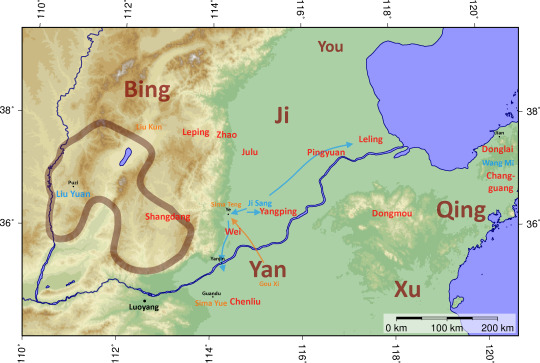
(Li Xiong)
2nd Year of Yanping, Spring,Luo Shang arranged and set up barriers and defence posts reaching Han'an and Bodao. At the time the people of Yi province drifted and relocated be in Jing and Xiang provinces, and in Yuesui and Zangke. Shang arranged and set up for the commanderies and counties to go where people were. He also arranged Army Advisors for the various villages.
3rd Month [19 April – 18 May], drifting people from Guanzhong (JS057: natives of Qin province), Deng Ding, Hong Di, and others, entered Hanzhong, and guarded Chenggu, gradually they began seizing and stealing. They plundered Hanzhong's Dongchenshi in rebellion. The Inspector of Liang# province, Zhang Yin dispatched the Grand Warden of Baxi, Zhang Yan. Yan, the leader [?] of the Serrated Gates Wu Zhao, and the Assistant of Hanguo commandery, Xuan Ding, dispatched troops to besiege them. Di sought aid from Li Xiong.
Summer, 5th Month [17 June – 16 July], Xiong dispatched Li Li, Li Yun, Li Huang, and Li Feng (JS121: Li Guo, Li Yun and others leading more than 20 000) to enter Hanzhong and aid Ding. The Grand Warden, Du Mengzhi (JS057: Du Zhengchong) heard Li had arrived, and instructed Yan to release the siege and protect the provincial city.
Earlier, when Yan attacked Ding, Ding's multitudes were starving and hungry, and he pretended to surrender. He sent one golden receptacle to give to Yan. Yan was delighted, and was delaying his host. Seven days later, Di arrived. Ding turned back to Dongchenshi. Yan advanced to besiege him, and did not heed Mengzhi's words. Li arrived and first attacked Zhao's camp. The camp was routed. Next he attacked Ding, and also routed him. Yan was afraid of fighting, and brought along a hundred cavalry to flee. Li and others greatly routed the provincial army. The Serrated Gates Cai Song withdrew and reported to Mengzhi, saying:
The provincial army has already been routed. The thieves' multitudes cannot be prepared for.
Mengzhi was terrified. The Army-Protector wished for the city to be defended, and spoke to Mengzhi, saying:
The thieves who come, though a multitude, have the conventionality of a guest's manners. Li the Trivial is pressured in the south-east. He will surely not divide off and lodge troops in the outside, and will not go beyond welcoming and pulling out Ding and DI, that is all.
Mengzhi said:
Not so. Xiong dares declare himself emperor and king, and indulges in spreading across Under Heaven. As he has dispatched a significant multitude, he will surely take Hanzhong. Although we have a secure city, the gentlemen and commoners have smashed their courage, it's not possible to prepare with them for the robbers.
He therefore opened the gates to withdraw and flee. The Army-Protector returned back north. Mengzhi entered the Dasang [“Great Mulberry”] Valley with several thousand families of commoners and several thousand chariots. In one night they travelled barely several tens of li. However, Jing Zi of Zitong, since his father had had a grudge with Mengzhi, gathered his sons and younger brothers to pursue him, catching up at the valley mouth. Mengzhi abandoned his children and ran. Jing Zi captured them, and more than a thousand families of functionaries and commoners.
Only the Board of Merit official of Hanguo, Wu Jian, shouldered a raised cane and said:
I, though incompetent, is a great official of a single state. When the state perishes, [I am] not able to survive, and in the end will not belong to the thieves.
He starved to death within the valley.
Mengzhi fled to Weixing. Zhang Yin likewise abandoned his office and escaped to Chang'an. After piling up more than ten days, Li and others pulled out and turned back. They thoroughly moved the people of Hanzhong to Shu. Commoners of Hanzhong, Gou Fang, and Bai Luo led the functionaries and commoners to turn back and defend Nanzheng.
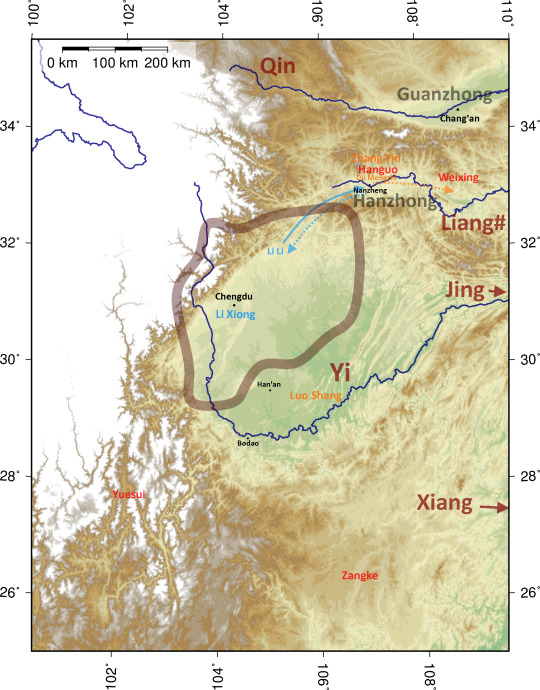
(Zhang Gui)
1stYear of Yongjia, Spring, 1st Month [19 February – 19 March], the Colonel of the Eastern Qiang, Han Zhi, killed the Inspector of Qin province, Zhang Fu. Gui's Junior Office Marshal, Yang Yin talked to Gui, saying:
Now Zhi has gone against instructions, and on his own killed Zhang Fu. Your Enlightened Excellency is the cudgel and axe of a single region, and ought to reprimand the irreverent. This is also the righteousness of the Spring and Autumn era. When the various marquises were wiping out and destroying each other, and Duke Huan was unable to save them, Duke Huan was ashamed of it.
Gui followed him, and dispatched the Controller-Protector of the Centre, Fan Yuan, led a multitude of 20 000 to chastise him. He first conveyed Zhi a letter which said:
Now that the kingly ropes are tangled and twisted, the shepherds and wardens should join forces to toil for the King. Just now [I] have obtained a call to arms from Yong province, stating that you Vassal, has claimed troops for an interior affront. I direct and is entrusted with a single region, the right-principled would be to cut down the rebellious, with a military battalion of thirty thousand, and steeds and couriers continuously sent out. The feeling of cutting wood, in my heart, how could be expressed! When the ancients marched with the host, keeping whole the state was the highest. Vassal, suppose you [came] on a single horse to the army's gates, [I] would combine with the Vassal to pacify the generation's difficulties.
Zhi obtained the letter and surrendered.
[Gui] dispatched the Master of Accounts Linghu Ya on a mission to the King of Nanyang, Mo. Mo was very pleased, he delivered to Gui a sword bestowed by the Emperor, and speaking to Gui said:
From Long [Mountain] and westwards, campaigning and smiting, severing and cutting off, are thoroughly being delegated, like this sword.
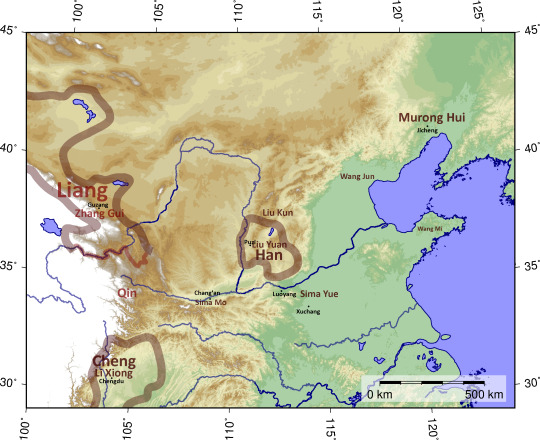
12 notes
·
View notes
Text
On the nature of historical fiction
I have been thinking about this for a couple of weeks now, as I have been writing/researching my own piece of historical fiction. However a recent ask on @the-archlich���s blog, as well as playing Ghost of Tsushima has made me want to get out my personal opinions on this subject. I will be ignoring concepts like historical fantasy or alternate historical fiction in this discussion and be focusing on the overarching category.
By nature of its design, historical fiction tends to fall into rigid categories. To elaborate, this is because it is based on an actual period of time. In my view tends to fall into a grid with two axes, which I will broadly refer to as accuracy and scale.
Accuracy is (as it implies) how true it is to the actual events and the history. You can get a very rigid historical fiction on one extreme and a very loose telling of the events on the other.
Scale refers to how involved the story is within the events of history. Are you telling an epic tale with hundreds of characters sprawling across a decade? Or is your story a personal one, which mainly uses setting as a backdrop? It would be the difference between a war-epic like Romance of the Three Kingdoms and a naturalist story like A Doll's House.
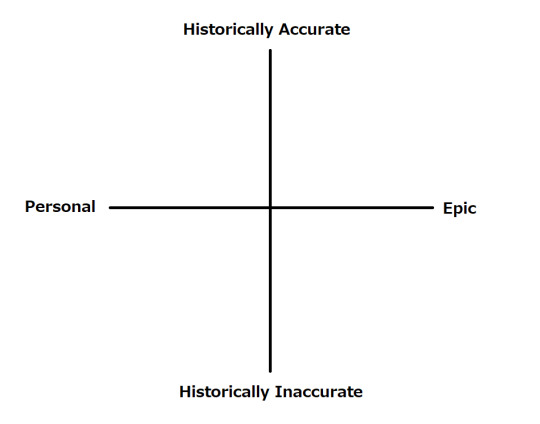
While this seems like an easy dichotomy to understand there is a factor I neglected to mention: cultural memory.
Cultural memory is how events are popularly interpreted. This can (and ususally does) cut against the recorded historical events. While this usually ends up creating inaccurate fiction, leaning on already established ideas can create a feeling of authenticity.
This is where something like Ghost of Tsushima comes into play. Ghost of Tsushima probably sits right about here:

Ghost is probably one of the most historically inaccurate games I’ve seen in a while. The swords are all wrong, as is the armour and the narrative goes entirely against what happened during the Mongol invasions. However, it feels authentic to the cultural memory of not just the Mongol invasions, but the samurai period as a whole.
It must be remembered that Samurai fiction and the cultural memory of samurai has largely been shaped by jidaigeki storytelling and chanbara film. So when playing Ghost the reason it feels authentic is because of how embedded it feels within the cultural memory of the samurai.
Cultural memory however, is a double-edged sword. It is the main reason why the narrative of Romance of the Three Kingdoms has prevailed for so long, and why much of the fiction of the Three Kingdoms Period feels stale. You have to really try to find something like DW7.
So the question becomes "What is the ideal place that your historical setting should target?" This is gonna differ for everyone, but what I personally like (and what I am personally writing right now) targets here:

I definitely have a preference for personal stories than epic stories. It's probably why of the Four Classics, I actually like Dream of Red Mansions the most. Moreover, a lot of chanbara and jidaigeki (and Japanese storytelling in general) fall into this category as they use the (rather broad) Edo Period as a backdrop to tell stories. This comes in part as a result of censorship within the Tokugawa bakufu. People were not allowed to tell certain types of stories that criticized the government, and in so doing developed a type of naturalist storytelling.
As a Historian though, I am fine with some historical inaccuracies if it serves a purpose in the narrative. In my storytelling, this is why I prefer to create characters that are analogues to actual people and try not to get the historical figures too involved in my story, which is a benefit that more personal stories and most jidaigeki use to their advantage. However this does not mean I wipe away the historical figures completely. They need to be actively involved in the larger events of the story, and can interact with your characters for important reasons. But what I want to avoid is that fan-fiction feeling of "Liu Jiao, secret cousin of Liu Bei teams up with Sima Yi to bring down the Cao Wei dynasty. (Looking at you, Ravages of Time).
Of course there will be exceptions to my personal standard and times when I break it. Part of writing generally is knowing when and how to break the rules. But make sure you carefully consider what you do before you do it.
65 notes
·
View notes
Text


Cdrama: Long for Fish (2024)
陈飞宇新电视剧 《献鱼》 期待期待哦 #古装 #古装剧 #穿越 #phimtrungquoc #xuyên_không #trầnphivũ #chenfeiyu
Watch this video on Youtube: https://www.youtube.com/shorts/dnVmVYiopAE
#Long for Fish#献鱼#Offering Salted Fish to Master#Offering Fish#Offering Sailed Fish#Fish Offer#Xian Yu#Xiang Shi Zu Xian Shang Xian Yu#獻魚#向師祖獻上咸魚#向师祖献上咸鱼#2024#youtube#cdrama#chinese drama#shorts#short video#Youku#behind the scenes#adelanto#trailer#Arthur Chen#Chen Fei Yu#Sima Jiao
3 notes
·
View notes
Text
Dynasty Warriors Weapon Moveset Power Rankings Tier List

With all the weapon movesets analysed and ranked, here is a summary tier list I've made of all the rankings. You can make your own weapon tier list on Tiermaker out of all movesets from 3 to 9.
Weapons with orange background show the characters who maintained their EX weapon from 7 to 8 while weapons with a golden background show the characters who had their weapons changed in or before 8 along with new characters in that game. Yueying's bladebow uses the image from 6 because the creator forgot to add the one for 8.
The ranking summary is after the break.
S
Lu Bu (呂布): Halberd (方天戟)
Xu Shu (徐庶): Sword & Hook (撃剣)
Sun Quan (孫権): Flame Blade (焔刃剣)
A
Xiahou Dun (夏侯惇): Podao (朴刀)
Dian Wei (典韋): Axe (手斧)
Zhou Yu (周瑜): Staff (棍)
Sun Shangxiang (孫尚香): Wheels (圏)
Zhao Yun (趙雲): Dragon Spear (龍槍)
Zhang Fei (張飛): Double Pike (双矛)
Zhuge Liang (諸葛亮): War Fan (羽扇)
Zhang Liao (張遼): Twin Axes (双鉞)
Sun Quan (孫権): Sword (刀)
Ma Chao (馬超): Spear (槍)
Zhang He (張郃): Claws (鉤爪)
Zhurong (祝融): Boomerang (飛刀)
Zhou Tai (周泰): Curved Sword (弧刀)
Cao Pi (曹丕): Dual Blade (双刃剣)
Ding Feng (丁奉): Circle Blade (断月刃)
Ma Dai (馬岱): Brush (妖筆)
Bao Sanniang (鮑三娘): Spinner (旋刃盤)
Sima Shi (司馬師): Lightning Sword (迅雷剣)
Sima Zhao (司馬昭): Striking Sword (烈撃刀)
Wang Yi (王異): Trishula (筆架叉)
Yue Jin (楽進): Dual Hookblades (双鉤)
Lu Su (魯粛): Rake (九歯鈀)
Jia Chong (賈充): Throwing Axes (舞投刃)
Yu Jin (于禁): War Trident (三尖刀)
Lu Lingqi (呂玲綺): Crossed Pike (十字戟)
B
Xu Zhu (許褚): Club (砕棒)
Taishi Ci (太史慈): Twin Rods (双鞭)
Guan Yu (関羽): Cresent Blade (偃月刀)
Diaochan (貂蝉): Chain Whip (多節鞭)
Xiahou Yuan (夏侯淵): Bow & Rod (鞭箭弓)
Sun Jian (孫堅): Nine Rings Blade (九環刀)
Lu Meng (呂蒙): Pike (戟)
Gan Ning (甘寧): Flail (鎖分銅)
Liu Bei (劉備): Twin Swords (双剣)
Huang Zhong (黄忠): Bow (弓)
Zhang Jiao (張角): Shaman Rod (錫杖)
Xu Huang (徐晃): Great Axe (大斧)
Zhenji (甄姫): Flute (笛)
Wei Yan (魏延): Double Voulge (長柄双刀)
Cao Ren (曹仁): Spike Shield (牙壁)
Yueying (月英): Dagger-axe (戦戈)
Pang De (龐徳): Mace (狼牙棒)
Ling Tong (凌統): Three Sectional Staff (三節棍)
Xingcai (星彩): Sword & Shield (盾牌剣)
Cai Wenji (蔡文姫): Harp (箜篌)
Jia Xu (賈詡): Chain & Sickle (鎖鎌)
Liu Shan (劉禅): Rapier (細剣)
Deng Ai (鄧艾): Revolving Crossbow (螺旋弩)
Wang Yuanji (王元姫): Throwing Knives (鏢)
Zhong Hui (鍾会): Flying Swords (飛翔剣)
Guo Huai (郭淮): Arm Cannon (連弩砲)
Guo Jia (郭嘉): Orb & Scepter (打球棍)
Li Dian (李典): Wheeled Halberd (車旋戟)
Han Dang (韓当): Short Pike (短戟)
Guan Yinping (関銀屏): Dual-headed Mace (双頭錘)
Zhang Chunhua (張春華): Wired Gloves (蟷螂鉄糸)
Chen Gong (陳宮): Art of War Scroll (兵法簡)
Xiaoqiao (小喬): Paired Fans (双扇)
Xun Yu (荀彧): Formation Wand (陣杖)
C
Cao Cao (曹操): General’s Sword (将剣)
Sima Yi (司馬懿): Horsehair Whip (拂塵)
Jiang Wei (姜維): Double-edge Trident (両刃槍)
Sun Ce (孫策): Tonfa (旋棍)
Daqiao (大喬): Pugil Stick (双杖)
Xiaoqiao (小喬): Iron Fan (鉄扇)
Meng Huo (孟獲): Gloves (鬼神手甲)
Guan Ping (関平): Great Sword (大剣)
Zuo Ci (左慈): Talisman Cards (呪符)
Lianshi (練師): Crossbow (弩)
Guan Suo (関索): Nunchaku (両節棍)
Wen Yang (文鴦): Javelin (擲槍)
Fa Zheng (法正): Woven Cloth (連結布)
Meng Huo (孟獲): Stele (石柱)
Wang Yi (王異): Emei Piercers (峨嵋刺)
Lianshi (練師): Mandarin Duck Hooks (鴛鴦鉞)
Liu Shan (劉禅): Dragon Column (龍床几)
Guan Suo (関索): Sabaton (飛蹴甲)
D
Lu Xun (陸遜): Swallow Swords (飛燕剣)
Huang Gai (黄蓋): Arm Blade (鉄舟)
Pang Tong (龐統): Shadow Fan (翳扇)
Zhuge Dan (諸葛誕): Short Rod (短鉄鞭)
Xiahou Ba (夏侯覇): Siege Spear (破城槍)
Guan Xing (関興): Wingblades (双翼刀)
Deng Ai (鄧艾): Revolving Crossbow (螺旋弩)
E
Yuan Shao (袁紹): Extension Blade (伸細剣)
Zhang Bao (張苞): Flail Sword (連刃刺)
Zhu Ran (朱然): Flame Bow (火焔弓)
Yueying (月英): Bladebow (刃弩)
#dynasty warriors#koei tecmo#koei warriors#dynasty warriors 7#dynasty warriors 8#dynasty warriors weapon moveset power rankings
0 notes
Text
Dynasty Warriors 7 Characters only unlocked in conquest mode
Conquest mode kinda replaced free mode yet kinda didn't. It had you go through all sorts of little battles throughout the land to fill in all the hexogons to gold. You had a bunch of towns you can go into and increase bonds with other playable officers. Now you should at least get all of story mode out of the way so you can unlock most of the characters you can choose from at the beginning. If you start out conquest mode like when you start the game first, you might have a very small roster to choose from. The starting roster from when you boot up the game for the first time is the following:
Xiahou Dun
Cao Cao
Sun Shang Xiang
Sun Jian
Liu Bei
Bao Sanniang
Sima Yi
Sima Zhao
Zhurong
It's not very big so go through story mode to collect some officers to play as.
Clearing the story of Wei unlocks: Xiahou Yuan, Dian Wei, Xu Zhu, Cao Pi, Zhang He, Zhang Liao and Jia Xu
Clearing the story of Wu unlocks: Zhou Yu, Lu Xun, Gan Ning, Lu Meng, Huang Gai, Ling Tong, Sun Ce, and Sun Quan
Clearing the story of Shu unlocks: Zhao Yun, Zhang Fei, Zhuge Liang, Pang Tong, Huang Zhong, Guan Suo, and Jiang Wei
Clearing the story of Jin unlocks: Sima Shi, Zhuge Dan, Wang Yuanji, Zhong Hui, Deng Ai, and Guo Huai
Any of the other faction characters, apart from Zhurong of course, will have to be unlocked in Conquest mode.
So now that we have taken care of unlocks from story, now we have the conquest unlocked only characters. Everyone can play in conquest mode but not story mode (the xtreme legends expansion added the feature you can play any story mode stage with any character). So who do you have left to get? Here's the following:
Cai Wenji
Cao Ren
Xu Huang
Zhenji
Daqiao
Xiaoqiao
Zhou Tai
Taishi Ci
Deng Feng
Lianshi
Guan Ping
Ma Chao
Ma Dai
Wei Yan
Xingcai
Yueying
Xiahou Ba
Diaochan
Lu Bu
Yuan Shao
Dong Zhuo
Zhang Jiao
Meng Huo
2 notes
·
View notes
Link
Romance of the Three Kingdoms XIV will launch for PlayStation 4 and PC via Steam on February 28, 2020 in North America and Europe, publisher Koei Tecmo announced.
Early purchases of the game will include the additional scenario “Battle of Yiling.” It will be downloadable for free via the PlayStation Store and Steam for two weeks following release.
In Japan, the historical strategy simulation game was previously dated for release on January 16, 2020—about one and a half months ahead of the western release.
Here are the latest details on the game, via its official website:
■ Domestic System
Area Overseers
By appointing an area overseer to each of the centers of your areas, you can promote development and increase gold income. Since in area development, the type of development each area overseer is good at depends on their abilities and characters, how each area is developed will require strategic management of personnel.
Also, area overseers will automatically suppress the surrounding area with each turn. By expanding your controlled territory, not only does your territory increase, but you can also serve to cut off an enemy unit’s supply route. Such activities allows one to create a kind of “Offense Administration” that can cooperate with your military actions.
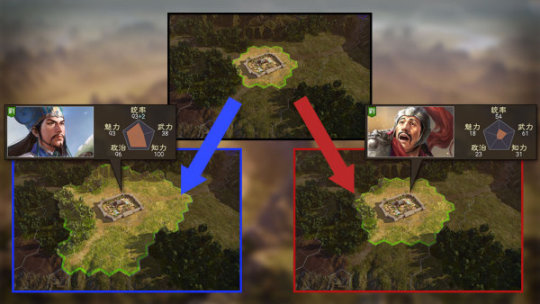
Cities / Gates
Cities, after fulfilling a number of conditions, will expand. Not only will it receive a number of benefits, like higher durability, increases in gold and supplies, and so on, certain of the cities will develop tactics that can be activated as counters during battle.
Also, in important locations there are Gates like Hulao Gate and Yangping Gate. Troops can be stationed there. These gates can also activate tactics. This means that city expansion and the use of gates become an important tool for defense and will greatly affect conflict around bases.
—The city changes visually as it expands.
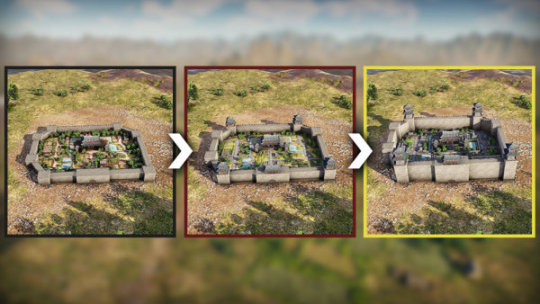
—“Hulao” gate, where the battle takes place between the Anti Dong Zhuo Coalition and Lu Bu, is one of the important gates.
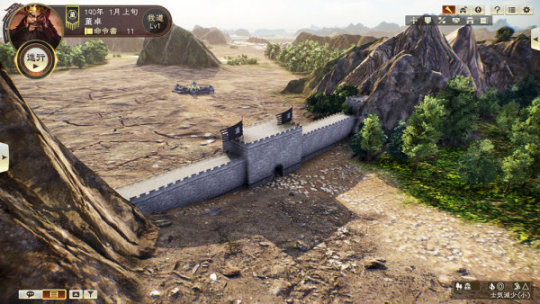
■ Battle System
Tactics
Deployed officers can use the tactics they know to greatly reduce enemy numbers, drop them into disorder and immobilization in order to make battle more advantageous for them.
In addition, some officers have unique and powerful tactics, which when triggered, can greatly change the flow of battle.
Tactics can be linked among nearby officers with high affinity, like sworn brothers, to release even more powerful effects. These will be of great aid to them in leading their force to victory.
—Each officer is assigned a formation, tactic, and troops when they are deployed.
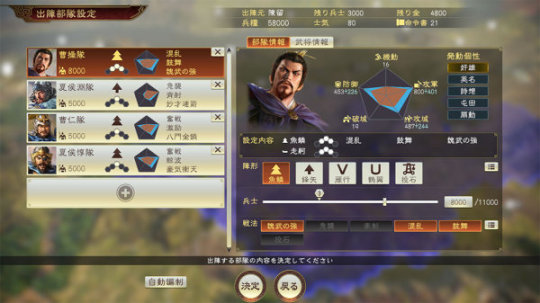
—Xiahou Dun’s Towering Aura tactic. Has the effect of raising the morale of nearby troops and lowering the movement of the enemy they are battling.
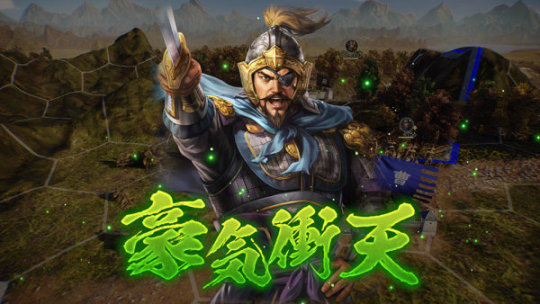
—Linked tactics achieved by officers with high affinity who activate their tactics at the same time.
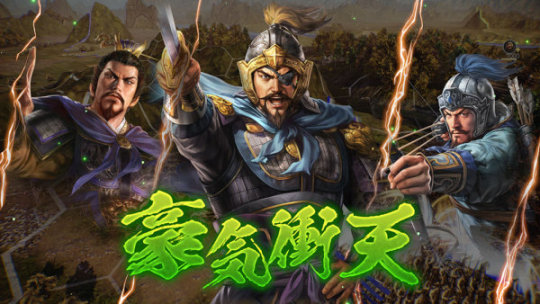
—With these linked tactic, the various effects of each officers’ tactics become stronger.
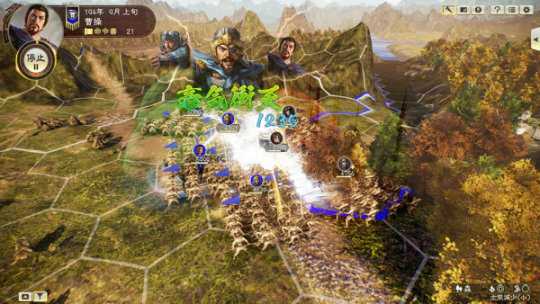
■ One Single Map
Buildings
The new battlefield allows the construction of various Buildings that allow the player to customize for his or her own advantage.
In addition to military facilities that automatically attack encroaching enemy or which lowers supply consumption, there are also Obstacles that restrict enemy actions and Traps that will cause damage to nearby enemy units. There are also Buildings like “Stone Soldiers” which only certain officers can construct.
By carefully mixing these buildings, you can recreate the dramatic fights of the Romance of the Three Kingdoms period, like the Battle of Yiling and its large scale fire attack.
—Buildings can be constructed by deployed units.
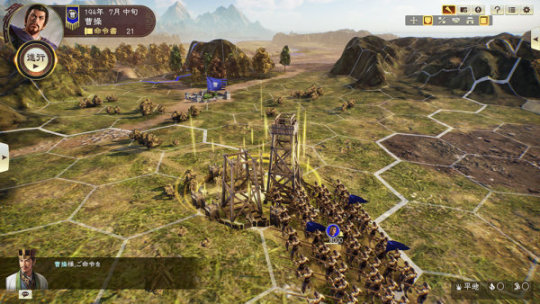
—The “Arrow Tower” attacks nearby enemy units.
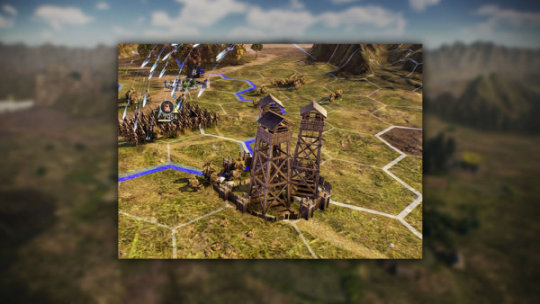
—The “Camp” lowers the allied forces consumption of supplies.
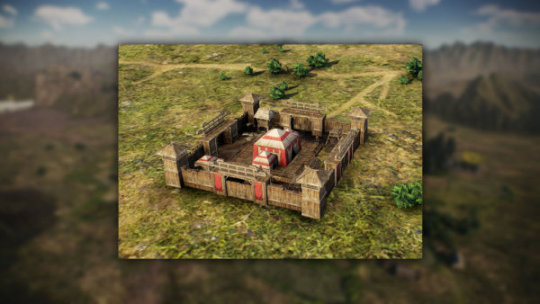
—An “Earthen Wall” will stop an enemy advance.
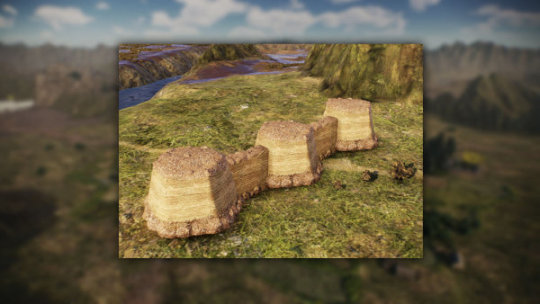
—“Stone Soldiers” lower enemy morale and cause disorder.
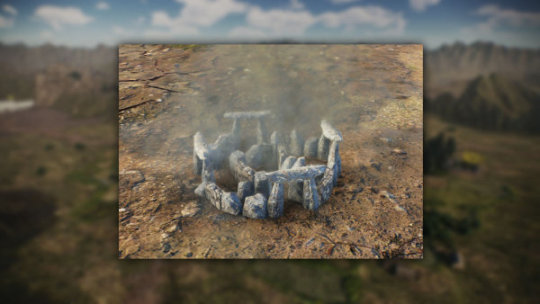
—Setting traps will allow you to attack approaching enemies all at once.
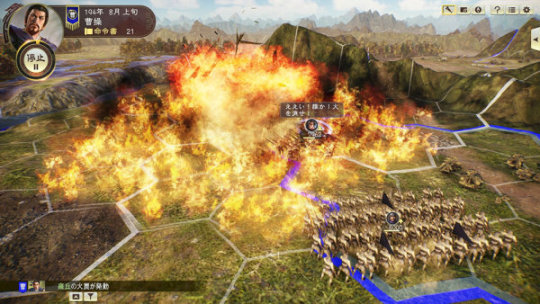
Various Battles
Players will see various battle scenes as enemies meet in differing locations and situations.
The front lines will see a variety of battles: Siege battles that involve towers and catapults, Naval battles where attack ships and roofed ships clash furiously.
Where to meet the enemy, what kind of battle to fight. Strategies that take into account the battle conditions will be vital to your success.
—Siege, where siege weapons show their might.
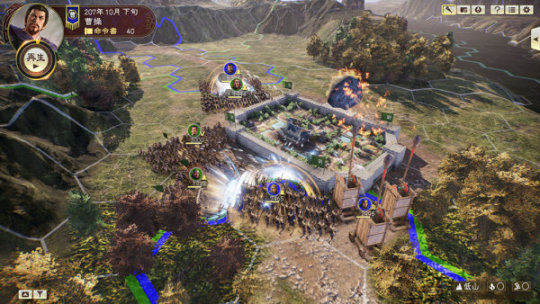
—Naval battles, where having a powerful navy gives you the advantage.
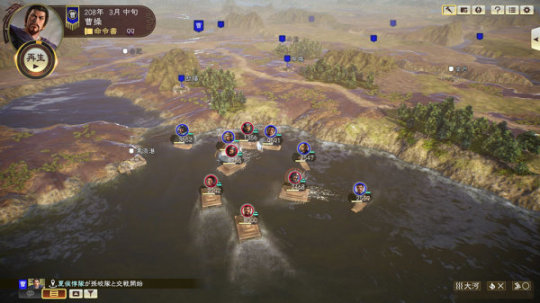
Characters
Guo Jia
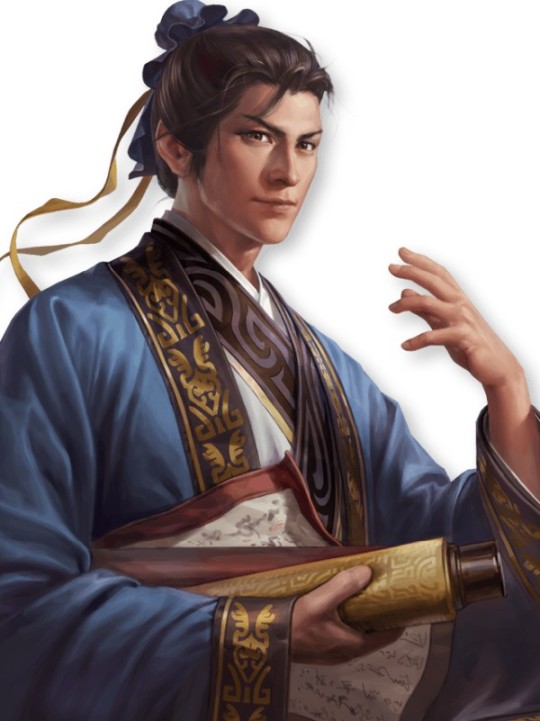
Minister under Cao Cao. Gained trust for his ingenuity and wisdom. Overcome with illness during the suppression of Neibei and died at age 38. Afterwards, Cao Cao often exclaimed, “If only Guo Jia were alive!”
Xun Yu
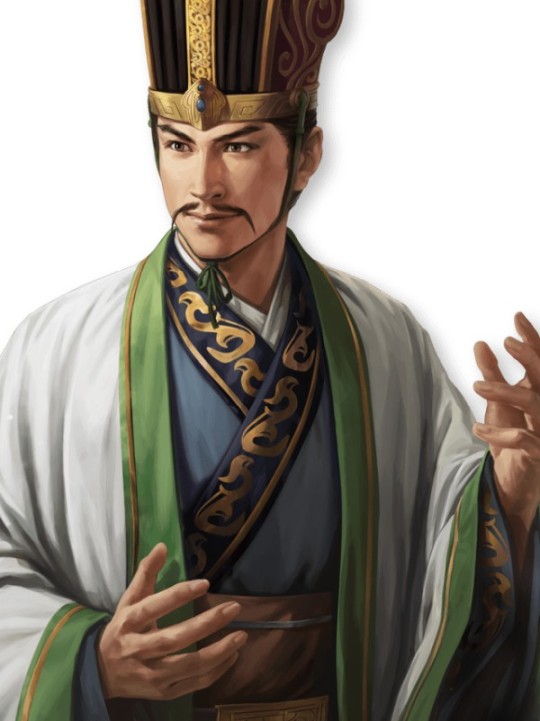
Minister under Cao Cao. A wise man whom Cao Cao called “My own Zhang Liang,” in reference to a famed strategist of early Han. Opposed the establishment of Wei and died of illness – or possibly suicide – shortly after.
Xiahou Yuan
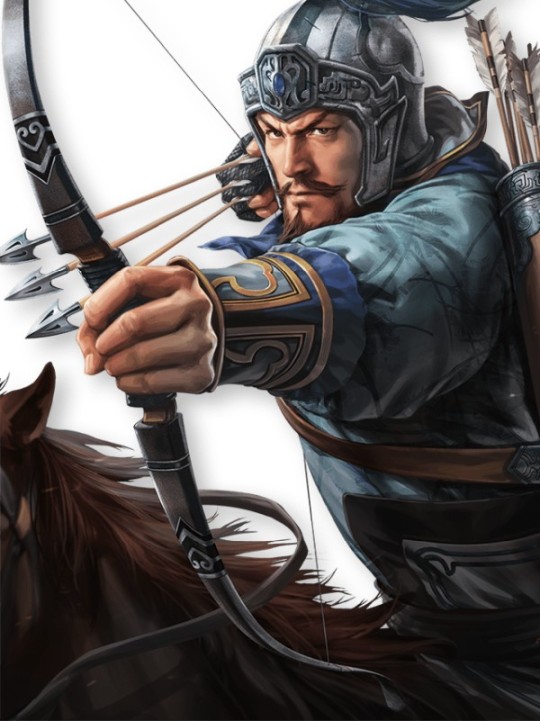
Officer of Wei and Xiahou Dun’s cousin. A commander of Cao Cao’s army from its inception. Though especially skilled at surprise attacks, he was tricked by Fa Zheng of Shu at Mt. Dingjun and slain by Huang Zhong.
Lu Meng
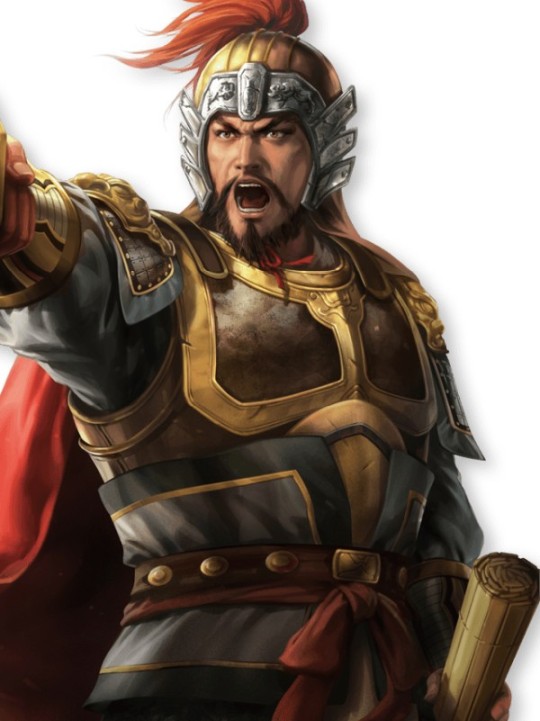
Officer of Wu. A courageous general who matured into greatness after Sun Quan persuaded him to master academics as well. As viceroy of Wu, he led an army to reclaim Jing and captured Guan Yu.
Lu Su
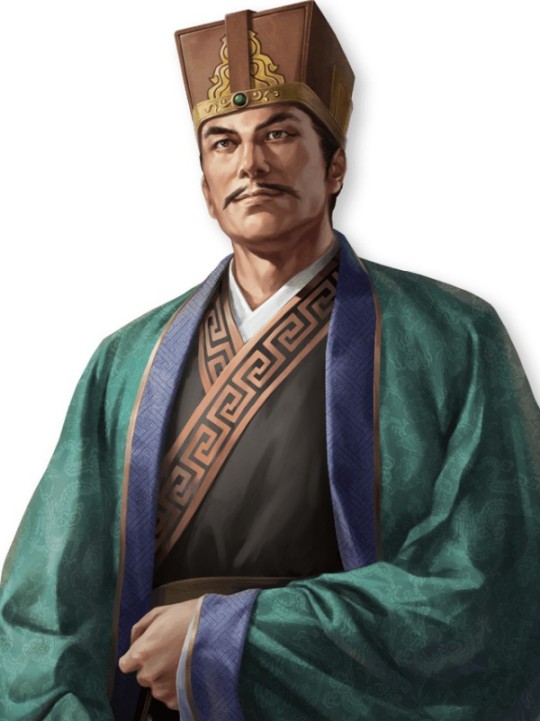
Minister of Wu. Entered the service of Sun Quan under recommendation from Zhou Yu. Insisted on an alliance with Liu Bei in the battle of Chibi. Inherited the title of commander after Zhou Yu’s death. Excelled in land-based battles.
Lu Xun
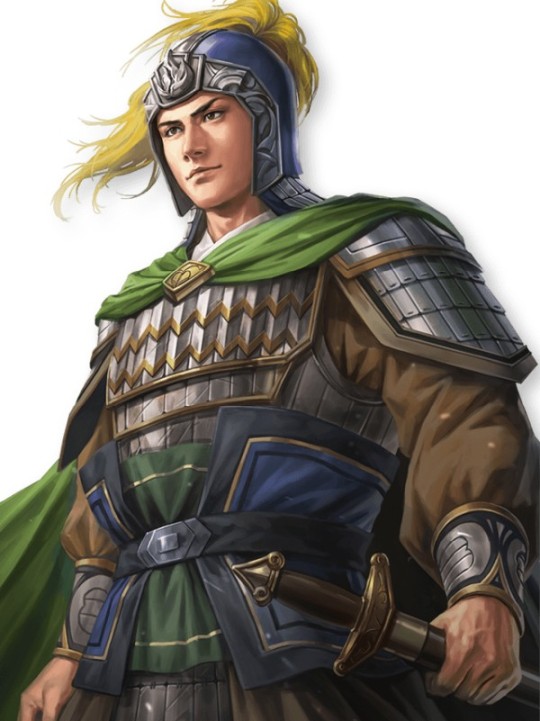
Officer of Wu and Sun Ce’s son-in-law. Schemed with Lu Meng to slay Guan Yu. Annihilated the army of Shu as grand viceroy at the battle of Yiling. Appointed to defend Jing and later became prime minister of Wu.
Sun Jian
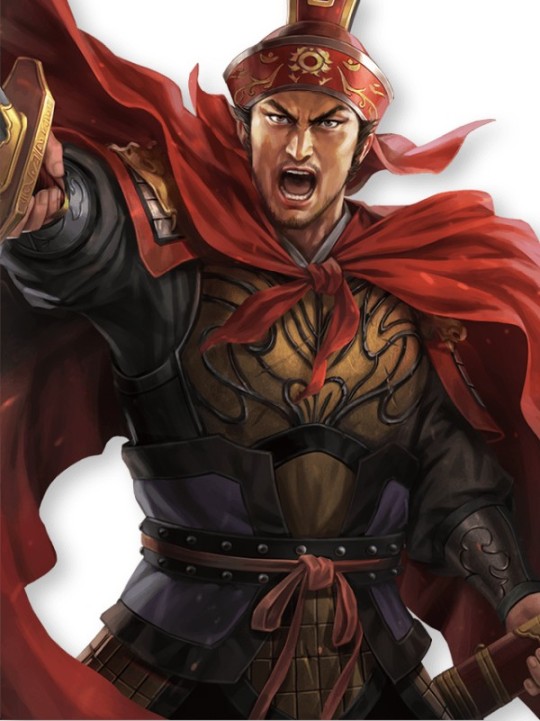
Said to be a descendant of Sun Tzu. Participated in the suppression of the Yellow Turbans and became the prefect of Changsha. Led the vanguard in the coalition against Dong Zhou. Died in battle at Xiangyang fighting Yuan Shu and Liu Biao. Posthumously named Emperor Wu Lie.
Xu Shu
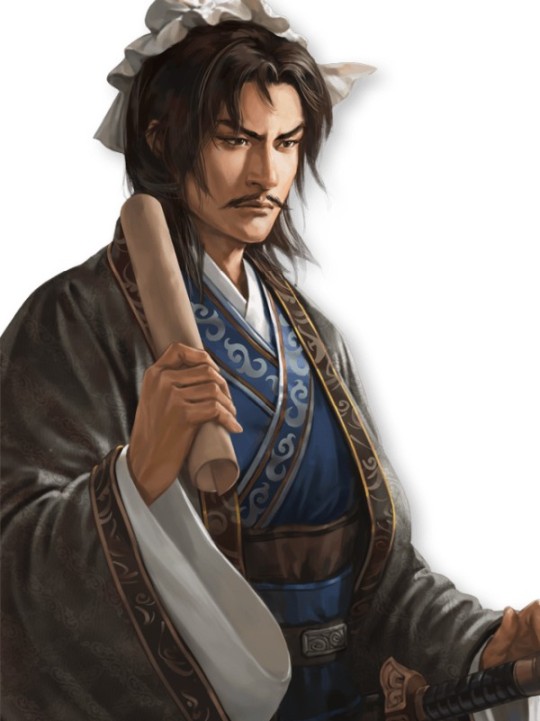
Pupil of Sima Hui. Master of fencing. Acted as strategist under Liu Bei but submitted to serving Cao Cao after the latter kidnapped his mother. Recommended that Liu Bei employ Zhuge Liang.
Fa Zheng
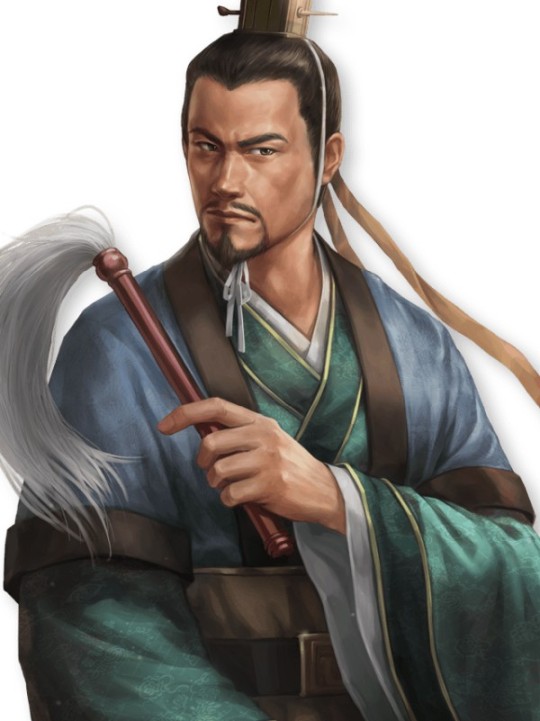
Minister under Liu Bei. Originally served Liu Zhang. Planned Liu Bei’s conquest of Shu with Zhang Song. An accomplished schemer, he acted as staff adviser in the battle of Hanzhong. It is said that had Fa Zheng lived, Liu Bei would not have failed at Yiling.
Sima Yi
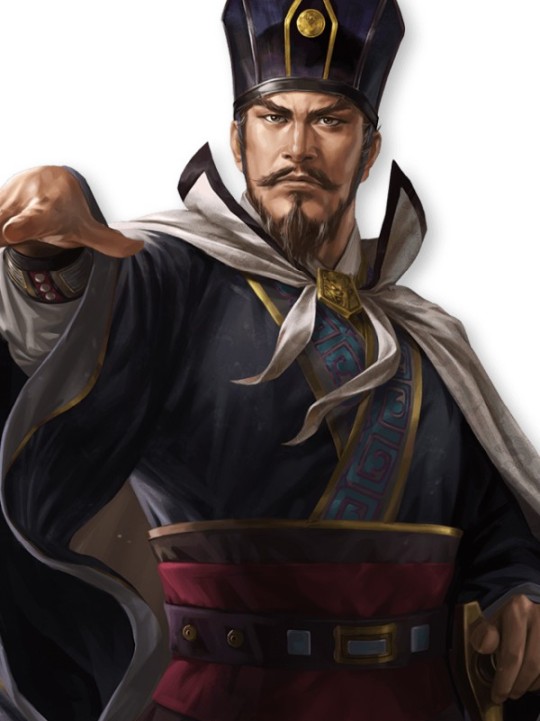
Minister of Wei. Served the fourth generation of the Cao clan and founded the Jin dynasty. Passed through Shu’s defenses and claimed victory over the kingdom. Fought with Cao Shuang and took control of Wei. Posthumously named Emperor Xuan.
Wang Yuanji
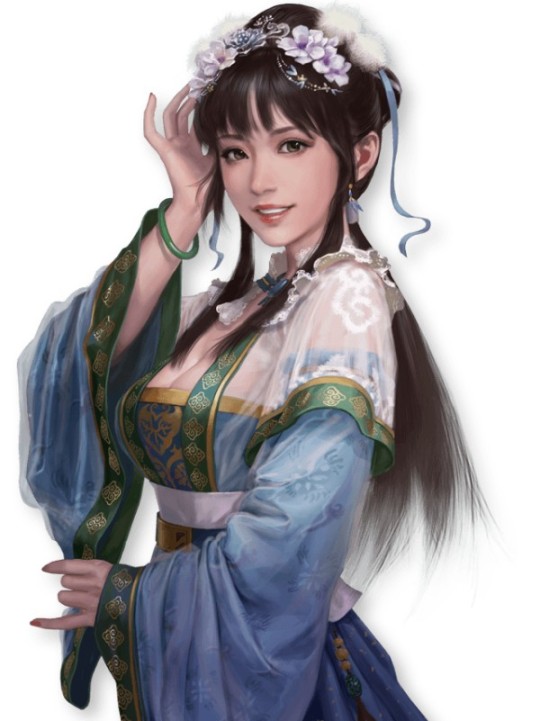
Wife to Sima Zhao. Gave birth to Sima Yan and Sima You. Brilliant enough to be able to recite classic texts at the mere age of 8, her grandfather Wang Lang despaired that she had not been born a man. She predicted Zhong Hui’s rebellion and warned Sima Zhao against him multiple times.
Yuan Shu
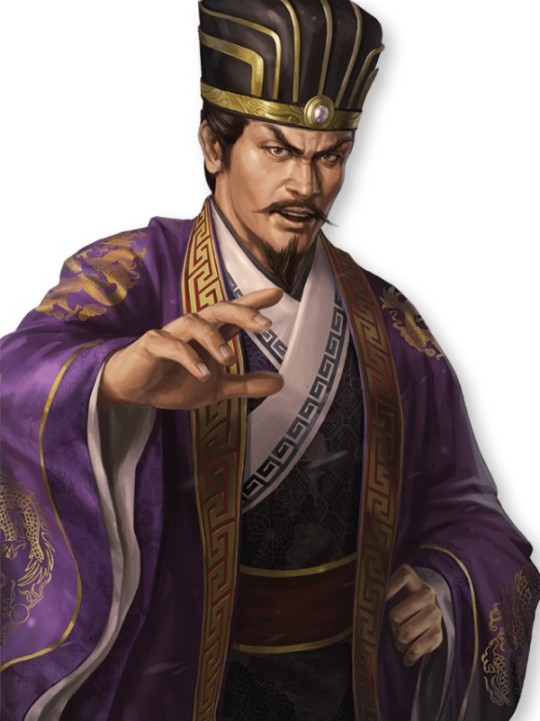
Prefect of Nanyang in late Han. Yuan Shao’s brother by a different mother. Given the imperial seal from Sun Jian as collateral for soldiers. Used the seal to claim himself emperor, but was soon overthrown for his misrule.
Zhang Bao
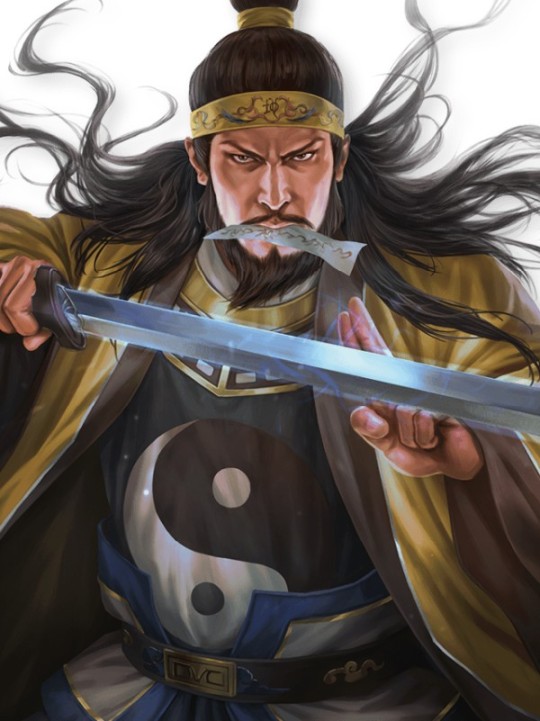
Zhang Jiao’s younger brother. He helped raise an army against the Han court with Zhang Jiao, and caused the Yellow Turbans Revolt. He led the revolt using his supernatural powers, but was killed.
Zhang Jue
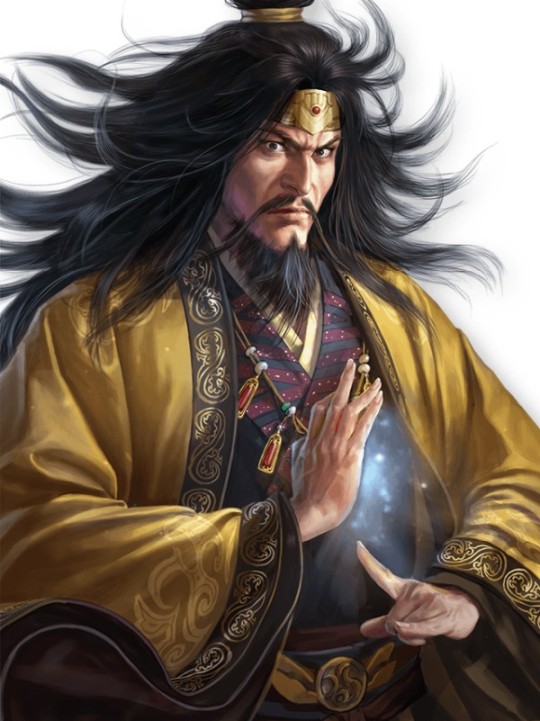
Forefather of the Way of Peace. He spread his teachings among the people and gathered enormous support. He formed the Yellow Turbans Party and opposed the Han court, causing a revolt.
And here is an overview of the game in general, via Koei Tecmo:
The entire map of China becomes a grand battlefield in Romance of the Three Kingdoms XIV, with no boundaries to where fights can take place. Warfare includes everything from siege—such as battering rams and catapults, to battles on water with a variety of different assault boats. Players will even find famous landmarks from the period of The Three Kingdoms; including the Yangtze River and Yellow River, with the chance to claim them as part of their domain.
In Romance of the Three Kingdoms XIV, claiming land is vital to overthrowing enemy forces and uniting The Three Kingdoms. Once an area is controlled by ally forces an officer can be appointed the role of ‘Area Overseer’, tasked with advancing the land’s development to increase its income; in commerce, agriculture, etc. During each turn this overseer will supervise the area they have been assigned and increase the territory of their forces – this simplifies territorial expansion and can be used tactically to cut off local supply lines. Carefully choosing an officer with appropriate abilities and characteristics can ensure the developments they make will lead to a strong and prosperous domain. For example: Those with a high charm statistic or the fame characteristic, and who are proficient in domestics, can become a force to reckoned with.
Some domains envelop Cities and Gates, which are extremely important locations on the map. Cities are bases for armies that can grow in scale and raise durability, if the right conditions are met. This growth brings increased gold and supplies, as well as unique tactics to defend these locations from enemy units. Gates such as Hulao Gate – which guards Luoyang on the East—and Yangping Gate—which guards Hanzhong from invasion from the North – are just two points on the map which are crucial to control. These sturdy locations can be occupied by military units and, like some of the cities, can have tactics activated to swiftly repel enemies.
While it is pivotal for players to develop areas within domain, it is also important to use ally land to construct an assortment of buildings and obstacles to defend and attack from incoming foes. Faculties such as “Arrow Towers,” which attack enemy units in the area automatically, “Camps,” allowing allied forces to consume less supplies on long campaigns, and “Stone Soldiers,” lowering enemy morale and causing great disorder through their ranks, are just a few of the unique strategies players can use to their advantage to protect their land. Combined with Obstacles, which play both an offensive and defensive role, these structures can have a great impact on the flow of battle. Strategic construction can allow players to re-create famous moments from The Three Kingdoms—set-up a long string of fire trap obstacles and carry out a large-scale fire attack like Lu Xun did at the Battle of Yiling.
Watch a new trailer below. View a new set of screenshots at the gallery.
youtube
#Romance of the Three Kingdoms XIV#Romance of the Three Kingdoms 14#Romance of the Three Kingdoms#RotTK#Koei Tecmo#Gematsu#long post
6 notes
·
View notes
Text
Sima Yi and Zhang Jue/Jiao don't have their signature weapons yet so instead they had what I like to call The Basic Bitch Sword, which way too of the playable characters had in old dw titles. Actually a lot of them literally shared the exact same weapon with the same stats and abilities and whatnot. Sure there was some variation in their movesets, but not as nearly as much as there would be in later titles. That's one of the perks of playing as female characters, even back when there was a lot less diversity in the characters' playable weapons and their movesets tended to be more realistic and down to earth, you're nearly guaranteed to have a unique, fun weapon. And even with Da Qiao and Xiao Qiao sharing, they felt like they had more variation between their movesets than a lot of the male characters cursed with The Basic Bitch Sword. I'm pretty sure that's the only way Omega Force has ever put more thought into female characters than male characters.
Hey for my fellow Dynasty Warriors fans, you guys know how if you're playing on hard difficulty or higher in dw3, enemy generals sometimes heal themselves, most often when you run off to look for health items as a way of chiding you for it? Yeah they do that in dw2 too, but. Like constantly. On the normal difficulty setting. At least for a lot of them, they do that every time they get knocked down, and it's hard to *not* knock enemies down. Oh and they can also give themselves 30 second x2 defense or x2 attack boosts. Because why not? Oh and gatekeepers can do all that too and in the older games taking them out actually mattered, you couldn't just ignore them if you didn't want to get swamped with a ton of low-level enemies.
See there's a reason why dw3 was the series' breakout title, dw1 was a generic 2d fighter, and dw2 was a pain in the ass and often straight up unfun to play even by the standards of the early 00s. I grew up with games in that era, and they tended to be considerably less polished and more tedious than games released nowadays, and *I* find dw2 tiresome.
'Why does no one ever talk about dw2, I really need to give it a try' I know why now! Because it sucks, that's why! Yeah sure, that was the first time they ever had that particular formula so of course it's going to be rough but. Ugh. Also the battle ui is ugly as fuck, I hate looking at it. If you really wanna play it for whatever reason I wouldn't recommend against it per se, I actually think it's good to play older games to learn more about the medium and to see the history of various series, but you probably won't have much fun.
5 notes
·
View notes
Note
Do you have a favourite character, be it for gameplay or just in general, from dynasty warriors?
I find I tend to favor strategists usually character-wise, though that changes a bit for Wu. Like I think my top three for each faction are :
Wei : Guo Jia, Jia Xu, Zhang He
Wu : Sun Ce, Zhou Tai, Gan Ning
Shu : Pang Tong, Zhuge Liang, Bao Sanniang
Jin : Wang Yuanji, Sima Yi, Zhang Chunhua
Other : Zhang Jiao, Meng Huo, Cheng Gong
1 note
·
View note
Text
DW Potential Additions Tier List
So I made some spreadsheets but decided I was putting in too much work so here’s a quick summary.
I was grading on a scale of 1-5. 1 was characters I really don’t htink would add anything good, but who I thought some might suggest (like Cao Zhi, Jia Nanfeng, Pan Zhang, Zhao Guang, Zhang Ren, etc.) 2 is people who could maybe work under very specific circumstances, like a big narrative shift or a lot of related characters being added, or who might be fine but aren’t nearly as good as some other options (like Cheng Yu, Cao Xi, Wu Jing, Mi Zhu, or Gao Gan). These don’t really make the cut for discussion, so if you don’t see a name you’re expecting, I probably put them in one of those tiers for some reason.
Tier 3 are characters who would be fine. Just fine. They either did enough to make themselves noteworthy, or have enough of a connecting to existing narrative and cast that they’d probably add something worthwhile. Not the ones I’d be most excited about, but the ones I couldn’t make too many complaints over.
Tier 4 are great adds. Characters I really want to see, who could really expand the cast in worthwhile ways.
Tier 5 are characters I forget aren’t in these games already because why are they not here?
I’m not going to explain every decision here because I’m sure there will be followup questions. Yes, I’m aware that Jin is overrepresented, because it’s the smallest of the main factions.
TIER 5
Lady Bian (Wei)
Zhang Xiu (Wei; previously Dong Zhuo, Liu Biao)
Zang Ba (Wei, previously Tao Qian, Lü Bu)
Cao Zhen (Wei)
Zhong Yao (Wei)
Xiahou Xuan (Jin)
Xun Yi (Jin)
Chen Tai (Jin)
Guanqiu Jian (Jin)
Wen Qin (Jin)
Yang Huiyu (Jin)
Hu Lie (Jin)
Hu Fen (Jin)
Lady Wu (Wu)
Zhang Zhao (Wu)
Zhuge Jin (Wu)
Lü Ju (Wu)
Zhu Yi (Wu)
Zhuge Ke (Wu)
Zhuge Zhan (Shu)
Jian Yong (Shu)
Zhang Ni (Shu)
Fei Yi (Shu)
Liu Biao (Other: Liu Biao)
TIER 4
Wen Pin (Wei; previously Liu Biao)
Xiahou Shang (Wei)
Cao Hong (Wei)
Jiang Ji (Wei)
Zhu Ling (Wei; previously Yuan Shao)
Dowager Guo (Jin)
Cao Shuang (Jin)
He Yan (Jin)
Pei Xiu (Jin)
Sima Fu (Jin)
Fu Jia/Gu (Jin)
Wang Ji (Jin)
Wang Ling (Jin)
Du Yu (Jin)
Sima (Gaoling) (Jin)
Sima Wang (Jin)
Shi Bao (Jin)
Sun Luban (Wu)
Sun Ben (Wu)
Sun/Yu He (Wu)
Jiang Qin (Wu)
Lü Fan (Wu)
Zhu Huan (Wu)
He Qi (Wu)
Quan Zong/Cong (Wu)
Zhuge Jing (Wu)
Tao Huang (Wu)
Wu Yan (Wu)
Lady Gan (Shu)
Liu Feng (Shu)
Ma Zhong (Shu)
Wang Ping (Shu)
Yuan Tan (Other: Yuan Shao)
Qu Yi (Other: Yuan Shao)
Tadun (Other: Yuan Shao, Wuhuan)
Shen Pei (Other: Yuan Shao)
Xu Rong (Other: Dong Zhuo)
Gao Shun (Other: Dong Zhuo, Lü Bu)
Gongsun Zan (Other: Gongsun Zan)
TIER 3
Cao Rui (Wei)
Guo (Nuwang) (Wei)
Chen Deng (Wei; previously Tao Qian, Lü Bu)
Zhang Changpu (Wei)
Wang Lang (Wei; previously Tao Qian, Liu Yao)
Sima Lang (Wei)
Jia Kui (Wei)
Du Xi (Wei)
Li Tong (Wei)
Cao Zhang (Wei)
Zhao Yan (Wei)
Cao Jie (Wei)
Li Feng (Jin)
Zhong Yu (Jin)
Qin Lang (Jin)
Wang Chang (Jin)
Sima Liang (Jin)
Sima Zhou (Jin)
Sima Jun (Jin)
Yang Hu (Jin)
Sima Yan (Jin)
Wei Guan (Jin)
Zhang Hua (Jin)
Tang Bin (Jin)
Jiang Ban (Jin)
Hu Zun (Jin)
Pan Shu (Wu)
Sun Luyu (Wu)
Sun Jing (Wu)
Sun Yu (Wu)
Sun Jiao (Wu)
Sun Shao (Bohai) (Wu)
Widow Xu (Wu)
Gu Yong (Wu)
Gu Tan (Wu)
Bu Zhi (Wu)
Chen Wu (Wu)
Dong Xi (Wu)
Zhu Zhi (Wu)
Zhu/Shi Ji (Wu)
Yu Fan (Wu; previously Liu Yao)
Lu Kang (Wu)
Lü Dai (Wu)
Pan Jun (Wu; previously Liu Biao, Shu)
Lu Kai (Wu)
Teng Yin (Wu)
Sun Jun (Wu)
Zhang Ti (Wu)
Wu Yi (Shu; previously Liu Zhang)
Wu Ban (Shu; previously Liu Zhang)
Zhang Shao (Shu)
Lady Ma (Shu; previously Liang Warlords)
Mi Fang (Shu; previously Tao Qian)
Lady Mi (Shu; previously Tao Qian)
Dong Yun (Shu)
Ma Liang (Shu)
Ma Su (Shu)
Chen Zhi (Shu; previously Liu Zhang)
Huo Jun (Shu; previously Liu Biao)
Huo Yi (Shu)
Luo Xian (Shu)
Yang Yi (Shu)
Li Hui (Shu; previously Liu Zhang)
Jiang Wan (Shu)
Deng Zhi (Shu)
Zhang Yi (Bogong) (Shu)
Liao Hua (Shu)
Lady Liu (Other: Yuan Shao)
Yuan Shang (Other: Yuan Shao)
Tian Feng (Other: Yuan Shao)
Ju Shou (Other: Yuan Shao)
Li Jue (Other: Dong Zhuo)
Cai Yong (Other: Dong Zhuo)
Liu Qi (Other: Liu Biao)
Cai Mao (Other: Liu Biao)
Lady Cai (Other: Liu Biao)
Kuai Yue (Other: Liu Biao)
Huang Zu (Other: Liu Biao)
Gongsun Yuan (Other: Yan)
Yong Kai (Other: Nanman)
Gaoding (Other: Nanman)
Liuzhou (Other: Nanman)
Liu Yao (Other: Liu Yao)
17 notes
·
View notes
Note
I'm a bit confused about Chen An's allegiance before he joined Han Zhao. Was he a subordinate of Sima Bao after the assassination attempt on him failed? Was he working with Han Zhao way before he formally joined them?
Long rambling answer below
The sources are somewhat contradictory, so I want to start out with some basic chronology.
Early 311, the King of Nanyang, Sima Mo, sends his son Bao west into the upper Wei valley to occupy Shanggui. The Inspector of Qinzhou resists him, so Mo sends Chen An and troops to help him out.
311, 6th Month, Luoyang falls to Liu Yao.
311, 8th Month, Sima Mo surrenders Chang'an to Liu Can, and is killed.
312, the future Emperor Min is set up at Chang'an.
313, Emperor Min formally ascends to the throne. The Great Marshal, the King of Nanyang, Sima Bao, appointed Chancellor of the Right.
315, 2nd Month, Emperor Min appoints Sima Bao Chancellor of State.
316, Emperor Min surrenders to Liu Yao, and is sent off to Pingyang.
318, February, Emperor Min killed at Pinyang.
319, 4th Month, “the Inspector of Qin province, Chen An, rebelled and surrendered to Liu Yao”. (JS006)
319 “ this year, King of Nanyang, Bao, declared himself King of Jin at Qi Mountain.” (JS006)
320, 5th Month, “the King of Jin, Bao, was murdered by his general Zhang Chun. Liu Yao sent Chen An to attack Chun, and wipe him out. An following that rebelled against Yao.” (JS006)
Sima Bao's biography in JS037 reads as follows:
“Bao, courtesy name Jingdu, as young had textual understand and was fond of recounting and composing. He began to be designated Heir of the Nanyang state. When Mo came to harm, Bao was in Shanggui. After that Jia Ya died, and Pei Bao# also was killed by Zhang Gui. Bao maintained [himself] in the lands of Qin province, titling himself Great Marshal and taking up authority to set up the hundred officials. The Di and Qiang of Longyou all followed him, and the Inspector of Liang province, Zhang Shi, dispatched envoys with tribute offerings. When Emperor Min acceded to the the throne, he used Bao as Chancellor of the Right, concurrently Palace Attendant, Commander-in-Chief of All Army Affairs West of Shan. Soon after he advanced to Chancellor of State.
At the defeat of Mo, Chief Commandant Chen An reverted to Bao. Bao instructed him to command a thousand men of the best and brave to chastise the Qiang, he was favoured and treated with considerable lavishness. Bao's general Zhang Chun and others envied him. They slandered An as having disloyal aspirations and requested to eliminate him. Bao did not allow it. Chun and others on their own hid retainers to stab An. An was cut, and hurried to turn back to Longcheng. He dispatched envoys to go to Bao, the tribute offerings did not break off.
When Emperor Min suffered dust, Bao declared himself King of Jin. At the time there was in Shanggui great famine, the multitude soldiers were hard-pressed and in difficulty. Zhang Chun attended on Bao to go to Nan'an. Chen An titled himself Inspector of Qin province, declared [himself] a vassal to Liu Yao. Chun again attended Bao to run to Sangcheng, they wanted to throw in with Zhang Shi.
Shi sent troops to welcome Bao, [but] actually to forestall him. That year Bao became ill and passed away, at the time he was aged 27. Bao in body and substance was plump and imposing, he once declared himself to weigh 800 jin. He delighted in dozing, feeble with illness he was unable to hold sway over a wife. He had no sons. Zhang Chun installed the lineage house's Sima Zhan to serve as Bao's descendant. Chen An raised troops to attack Chun. Chun fled, and Zhan surrendered to An. An sent him off to go to Liu Yao, and Yao killed him. An welcomed Bao's remains, and used the rites of the Son of Heaven to bury him in Shanggui, his posthumous title was Inaugural [yuan].”
So according to this account Chen An came to Sima Bao some time after Sima Mo's death in 311, and was treated with great favour. Zhang Chun then tried and failed to assassinate him, so Chen An fled to his own base. He however remained in touch with Bao and acknowledged his authority. Early in 319, Sima Bao declared himself King of Jin, but famine forced him to abandon Shanggui and move upriver. So Chen An took the title of Inspector of Qin province and formally submitted to Liu Yao. Sima Bao and Zhang Chun moved again to Sangcheng where Bao died of illness (contradicting JS006 which says that Zhang Chun killed him.)
Zhang Shi's biography in JS086 says
“[Zhang] Shi knew Liu Yao pressured to move the Son of Heaven [Emperor Min], and held a great lamentation for three days. He dispatched the Marshal of the Grand Office, Han Pu, the General who Wipes out Bandits, Tian Qi, the General who Consoles the Rong, Zhang Lang, and the Controller-Protector of the Spear-point, Yin Yu with 10 000 infantry and cavalry, to go east and attend on the state's difficulties. He instructed the General who Chastises the Miscreants, Chen An, the former Grand Warden Jia Qian, and the Grand Warden of Longxi, Wu Shao, to each command the commandery troops as vanguard for Pu and others.
…
A the time Jiao Song and Chen An robbed Longyou, and to the east they and Liu Yao grasped each other. The dead among the people of Yong and Qin were eight or nine out of ten.
...
Arriving at this point, the song was said to be verified. Jiao Song and Chen An pressured Shanggui. The King of Nanyang, Bao, dispatched envoys to tell about the urgency.
Used the Grand Warden of Jincheng, Dou Tao, as General of Light Chariots. Led the General who Dominates the Distant, Song Yi, and He Bao, Zhang Lang, Song Ji, Xin Tao, Zhang Xuan, Dong Guang, and 20 000 infantry and cavalry to go to him. The army stayed at Xinyang, when it happened that the news of Emperor Min's collapse arrived.
…
Bao heard that Emperor Min had collapsed, he declared himself King of Jin, established the inaugural, and appointed and set up the the hundred officials. He dispatched envoys to designate Shi Great General who Conquers the West, Rities Similar to the Three Ministers, and conferred an estate of 3 000 households. Soon after, Bao was disobeyed by Chen An, the Di and Qiang both responded to him. Bao was hard-pressed and harassed, and thereupon departed Shanggui, and moved to Qi Mountain. Shi dispatched Han Pu with 5 000 infantry and cavalry to attend to the difficulties. Chen An withdrew to guard Mianzhu, Bao returned back to Shanggui. It was not long before Bao again was defeated by An. Shi dispatched Song Yi to go to him, and An withdrew. It happened that Bao was pressured by Liu Yao, and turned back to Sangcheng, and wanted to plan running to Shi.”
(Zhang Shi, worried that Bao will subvert his authority, sends an army to pretend to guard Bao but “ actually to forestall him”, then “it happened that Bao passed”, no details given.)
So here Chen An is described as attacking Sima Bao several times after 316, though the final retreat to Sangcheng is assigned to pressure from Liu Yao. I think it's possible to reconcile this account with JS037 if we assume that Chen An's loyalty was not quite as constant as JS037 wish to portray. After the assassination attempt, Chen An initially may remained broadly aligned with Sima Bao, but broken with him later on. Bao's biography has simply skipped this because it contradicts the story it wants to tell.
Liu Yao's Yearly Annals in JS103 adds basically nothing, it says that Chen An submitted to Yao's general You Ziyuan when the latter toured Longyou in 318.
The first entires on Chen An in the ZZTJ basically repeats JS037 and JS086, so I won't go over that again. In ZZTJ091's account of 318 we read the following:
“[In 318] the King of Nanyang, Bao, declared himself King of Jin, changed the inaugural to Jiankang, and set up the hundred officials. He used Zhang Shi as Great General who Conquers the West, Opening Offices with Rites Similar to the Three Ministers. Chen An declared himself Inspector of Qin province, he surrendered to Han and also surrendered to Cheng.
There was in Shanggui great famine, the multitude soldiers were in difficulty and harassed. Zhang Chun attended Bao to go to Qi Mountain in Nan'an. Shi dispatched Han Pu to lead 5 000 infantry and cavalry to save him. Chen An withdrew to guard Mianzhu. Bao returned back to Shanggui. It was not long before Bao again was pressured by An. Shhi dispatched his general Song Yi to rescue him. An therefore withdraw.”
Most of this just JS037 and JS086 combined into one text, but there are a couple of unique details, Bao's reign title of Jiankang (it's possible this is elsewhere in the JS, I didn't bother searching it for “Jiankang”, and bao is also a common graph.), and Chen An surrendering to both Han and Cheng.
Then later on in ZZTJ091, under 319:
“The King of Jin, Bao's generals Zhang Chun and Yang Ci were not in accord with the detached general Yang Tao, and recommended Bao execute him, moreover they requested to strike Chen An. Bao in both cases did not follow.
Summer, 5th Month, Chun and Ci secluded Bao and killed him. Bao's body was plump and big, he weighted 800 jin. He delighted in dozing, and was fond of reading books, yet he was ignorant, weak, and indecisive, and for that reason he came to difficulty. Bao had no sons. Zhang Chun installed a son of the lineage house, Zhan, as Heir, and declared [himself?] Great General. Those among Bao's multitudes who scattered and ran to Liang province was more than 10 000 people.
Chen An petitioned to the Ruler of Zhao, Yao, requesting to chastise Zhan and others. Yao used An as Great General. He struck Zhan, and killed him. Zhang Chun ran to Fuhan. An apprehended Yang Ci, and beheaded him in front of Bao's coffin, and following that sacrificed to Bao. An used the rites of the Son of Heaven to bury Bao at Shanggui, his posthumous title was Inaugural King.”
While again there are similarities with JS037, the name Yang Ci is recorded nowhere in the JS, so here ZZTJ091 must be working off another source, perhaps now lost parts of the Spring and Autumn of the Sixteen Kingdoms.
But to summarize: I think Chen An is best understood after 311 as an independent warlord who shifted his allegiance as necessary. Early on he may have tried to join Sima Bao, and later on gone against him. Then in 318 he formally submitted to the growing strength of Liu Yao while still retaining his own power base.
7 notes
·
View notes
Note
Last one and of course your Dynasty Warriors list. ;p
Character I first fell in love with:I remember loving SSX when I played my very first DW. Too bad I don’t like her at all these days.Character I never expected to love as much as I do now:Sun Jian. He just keeps getting better ever since DW7 (didn’t play much DW6). Also Xun Yu because he’s better than your typical pretty boys of the series (Also because @justsittingherewatching makes me realize I have a thing for his crotch as well)Character everyone loves but I don’t:Ling Tong, Gan Ning, Lu Xun, Cao Pi. The first three never really appealed to me and last one becomes eh as the series goes on.Character I love but everyone else hates:I actually like Zhang Jiao for being over the top silly with his speech. But if we’re going underrated characters then it’s Sun Jian. Come on, this guy deserves way more love than he gets by the fandom!Character I used to love but don’t any longer:As mentioned in the first part, SSX. I actually used to like the whole Shu characters but now they’re just garbage to me with few exceptions there.Character I would kiss:I’m taking tiger daddy Jian. You can’t make me not take him. I’d kiss Xun You and blue angel sweetie Wenji too. Character I want to slap:I really, really, REALLY want to slap Jiang Wei for his delusional righteousness or whatever.A pairing I love:Hmm the pairing I actually like is Sima Zhao X Yuanji since I actually see them as friends rather than strangled by the red string. Sima Yi X Zhang Chunhua and Meng Huo pretty X Zhurong are nice too.A pairing I hate:Cao Pi X Zhenji is just UUURRGHH with the latter being so blindly devoted to the former to the point she doesn’t have any other outside interest. That said I also hate Liu Bei X SSX.
3 notes
·
View notes